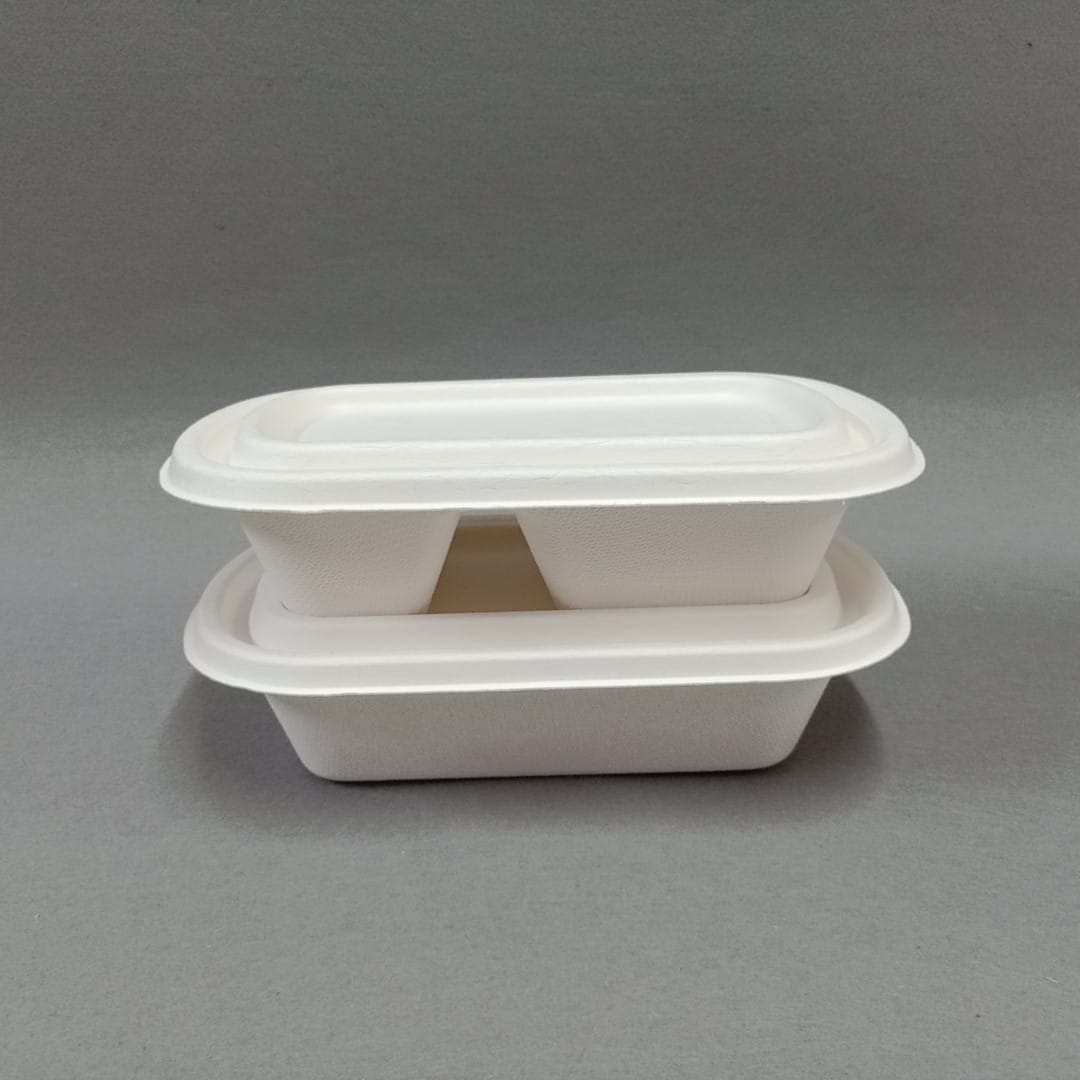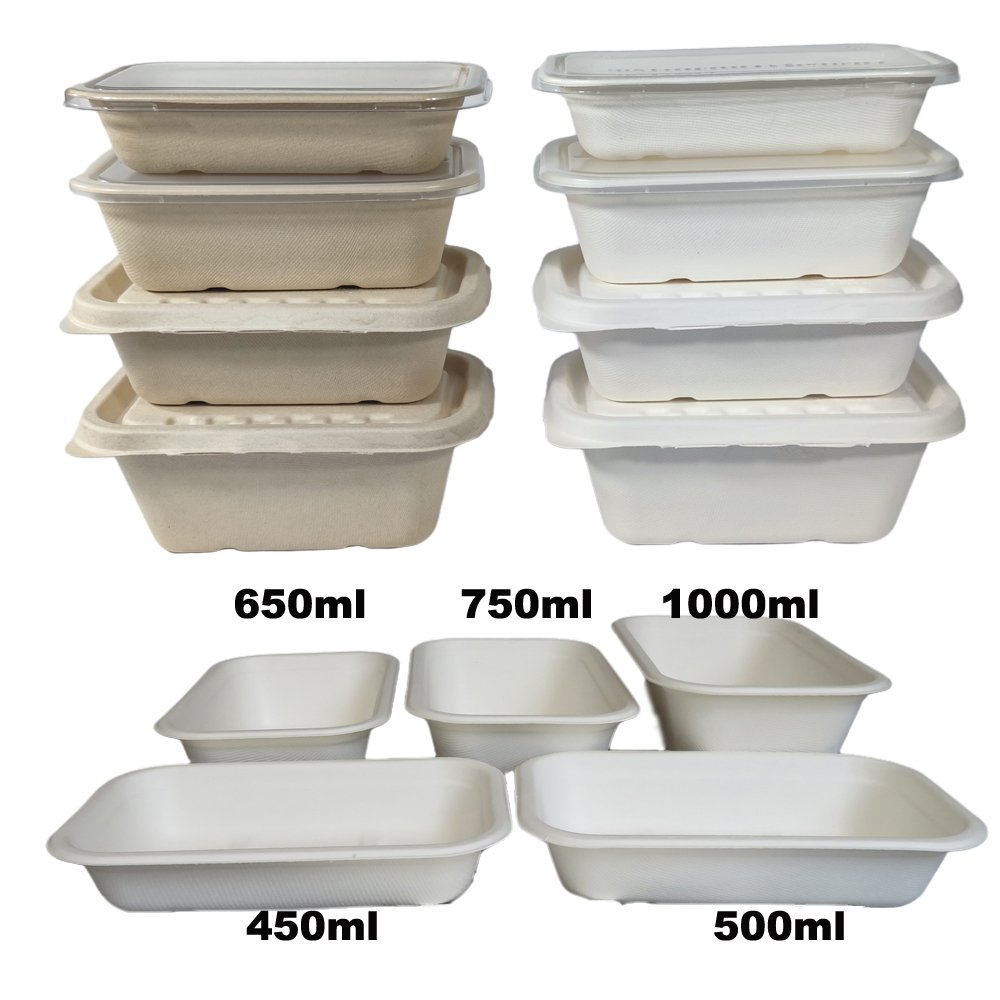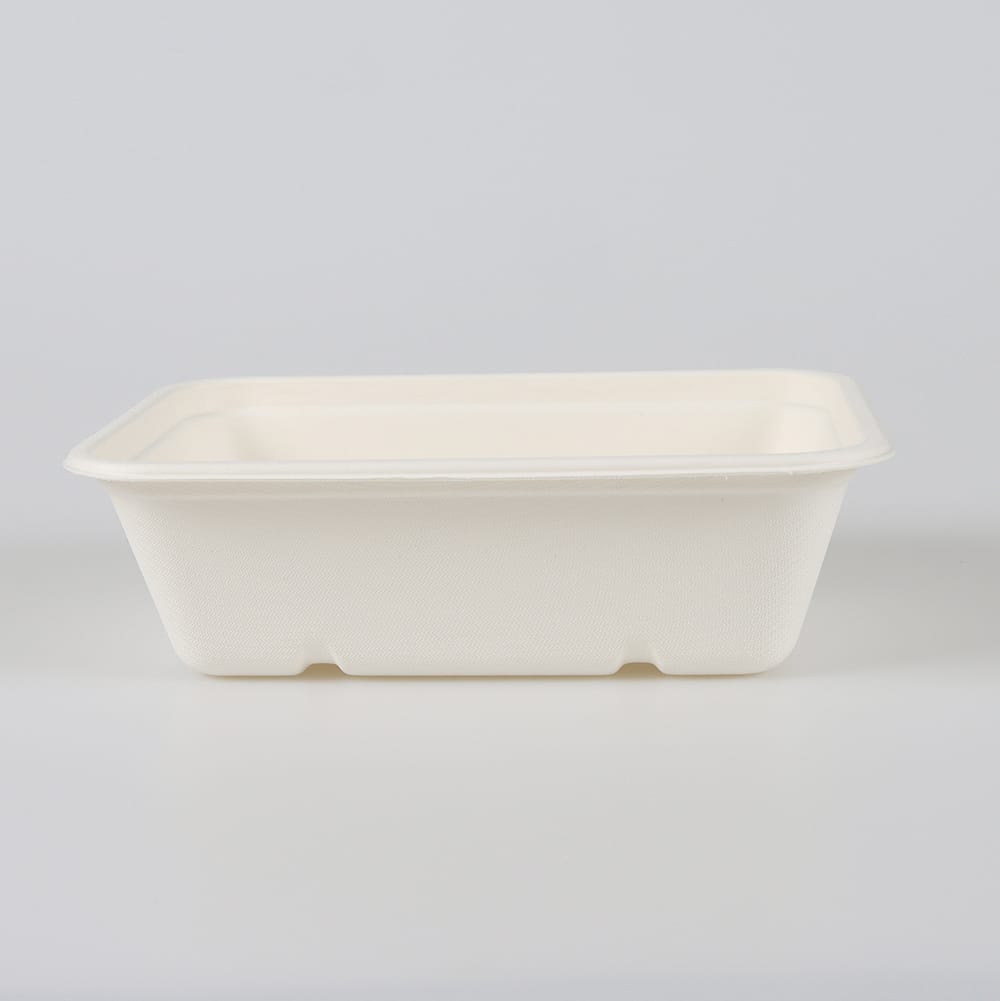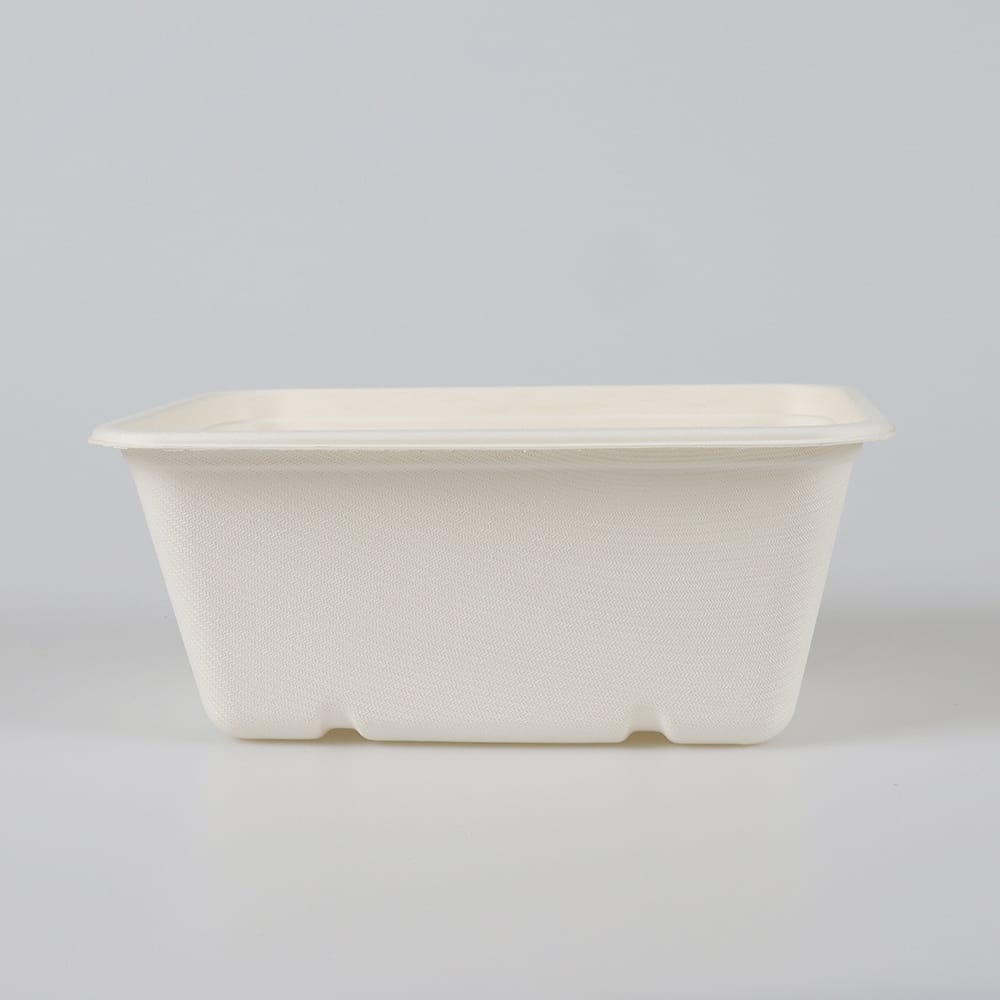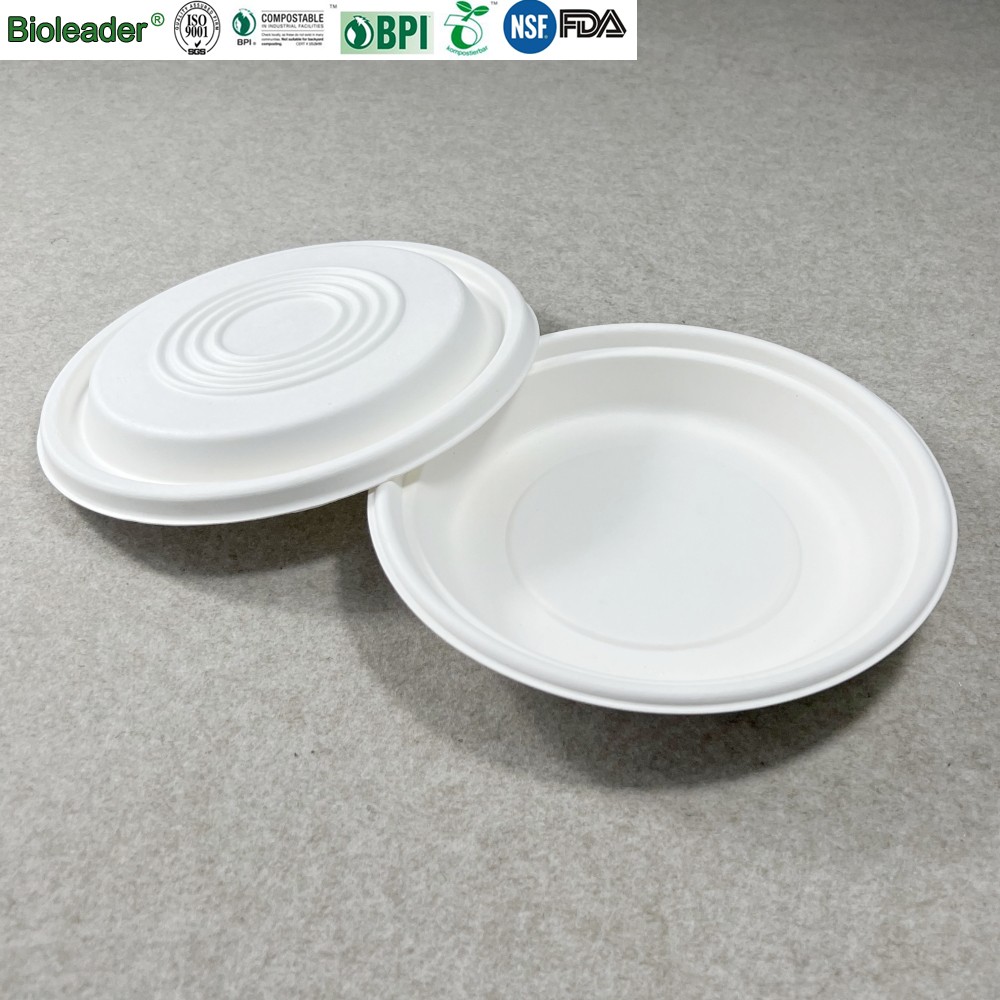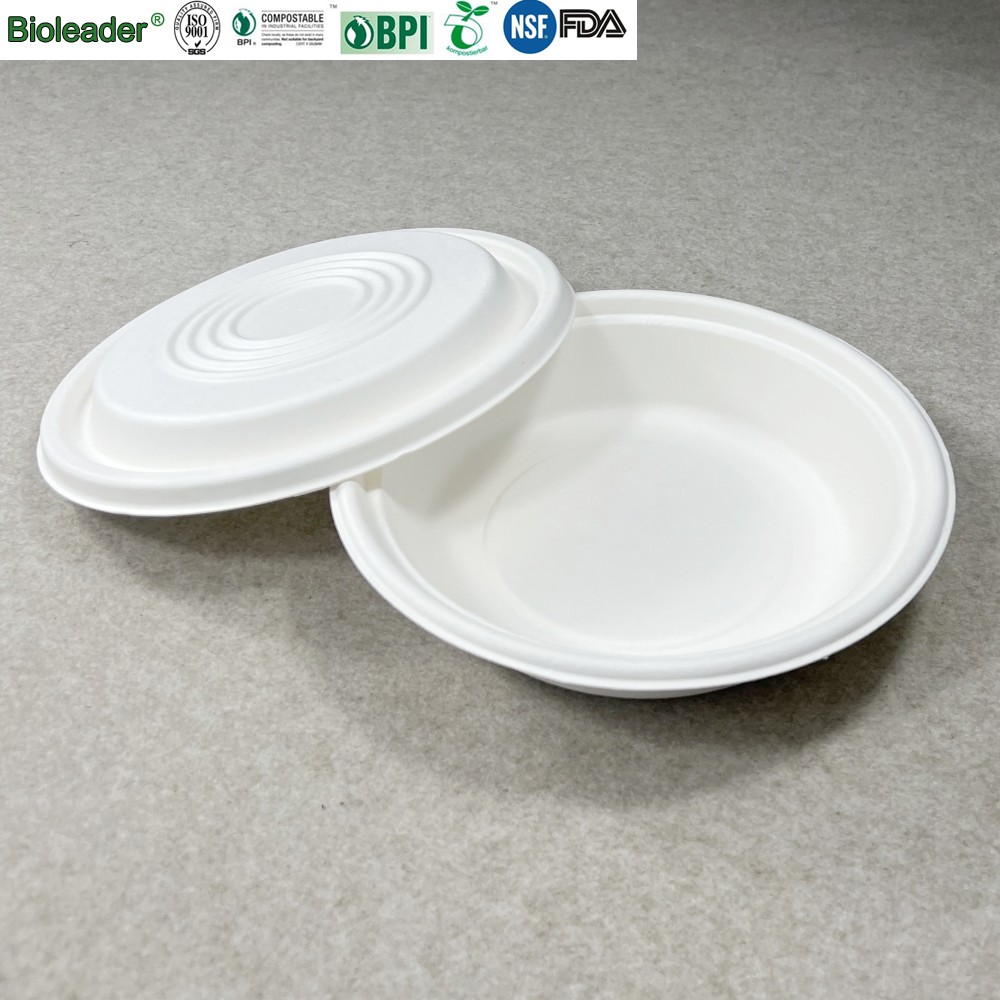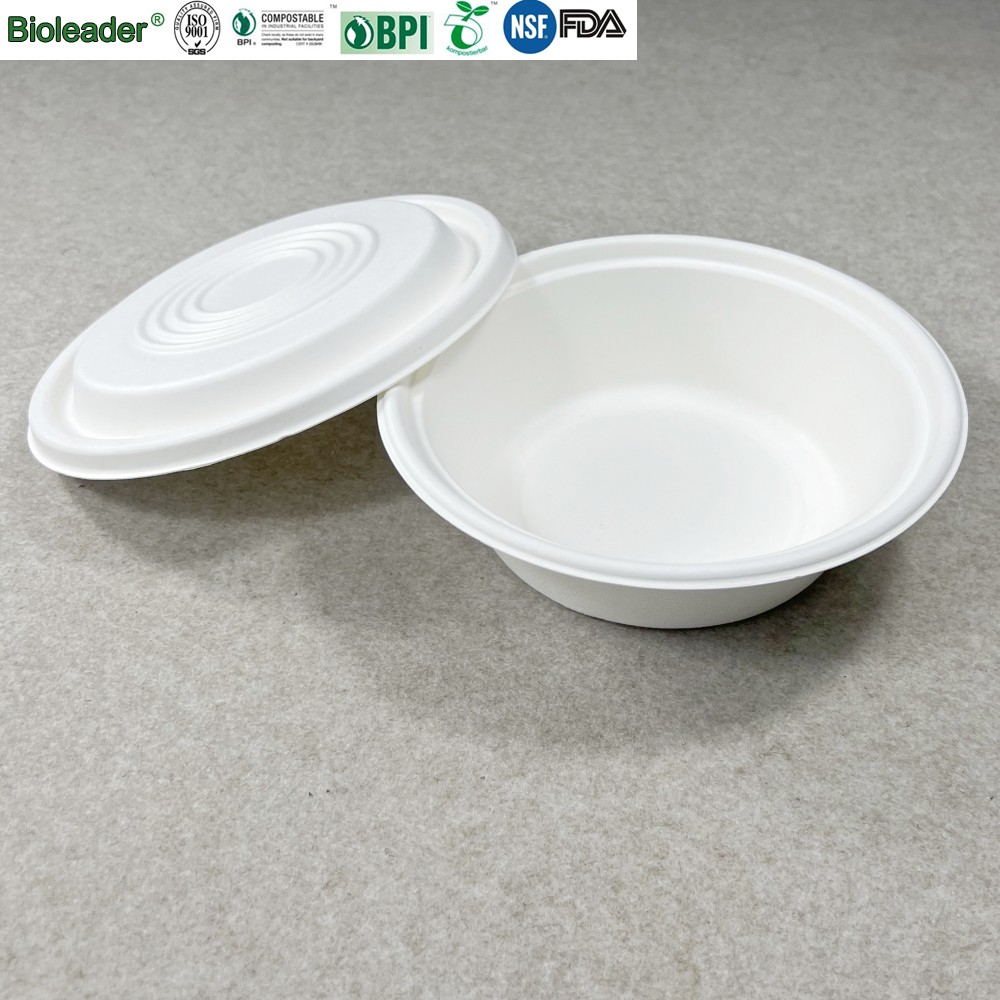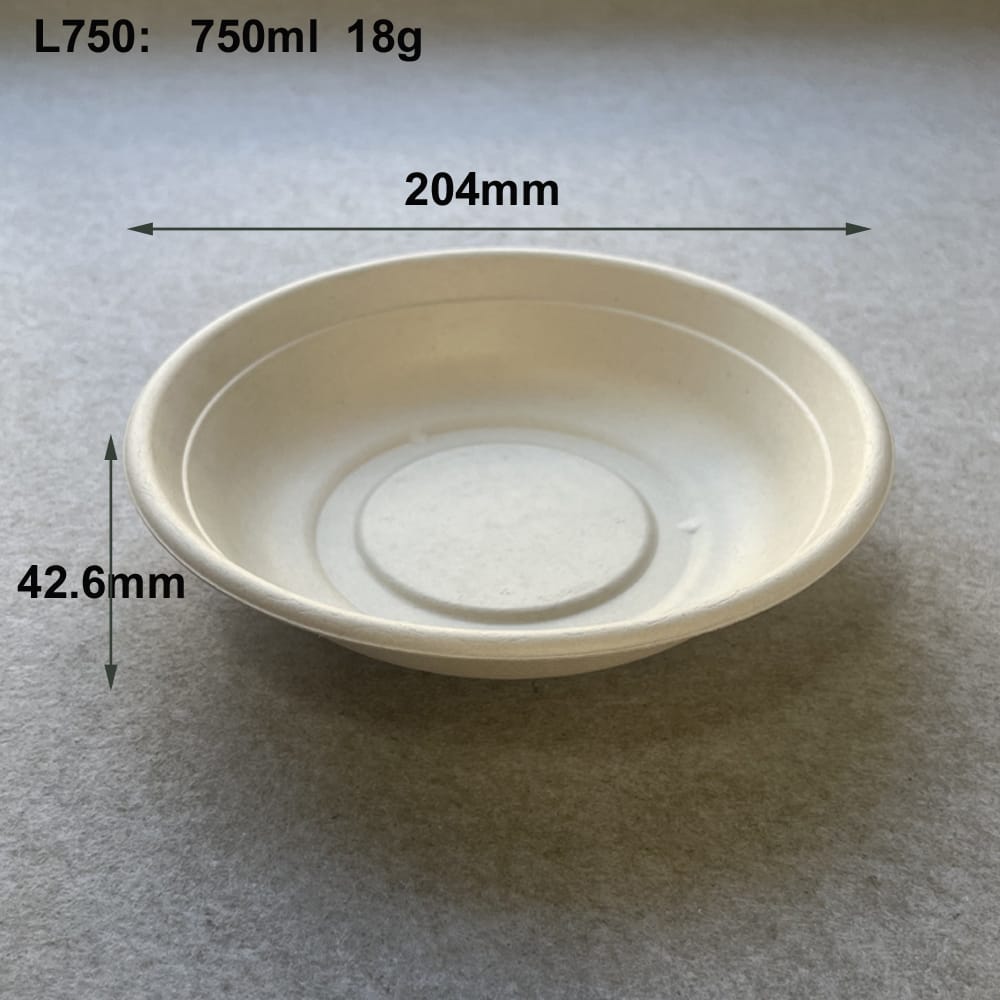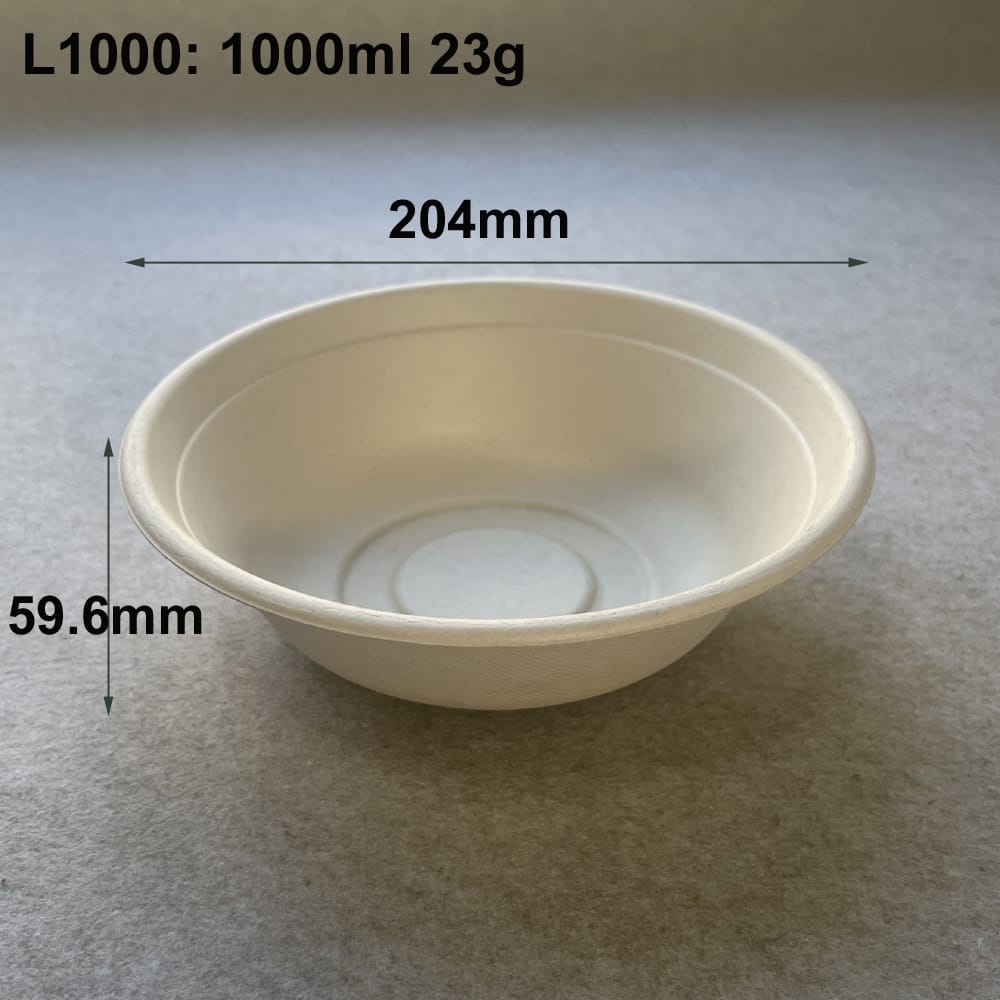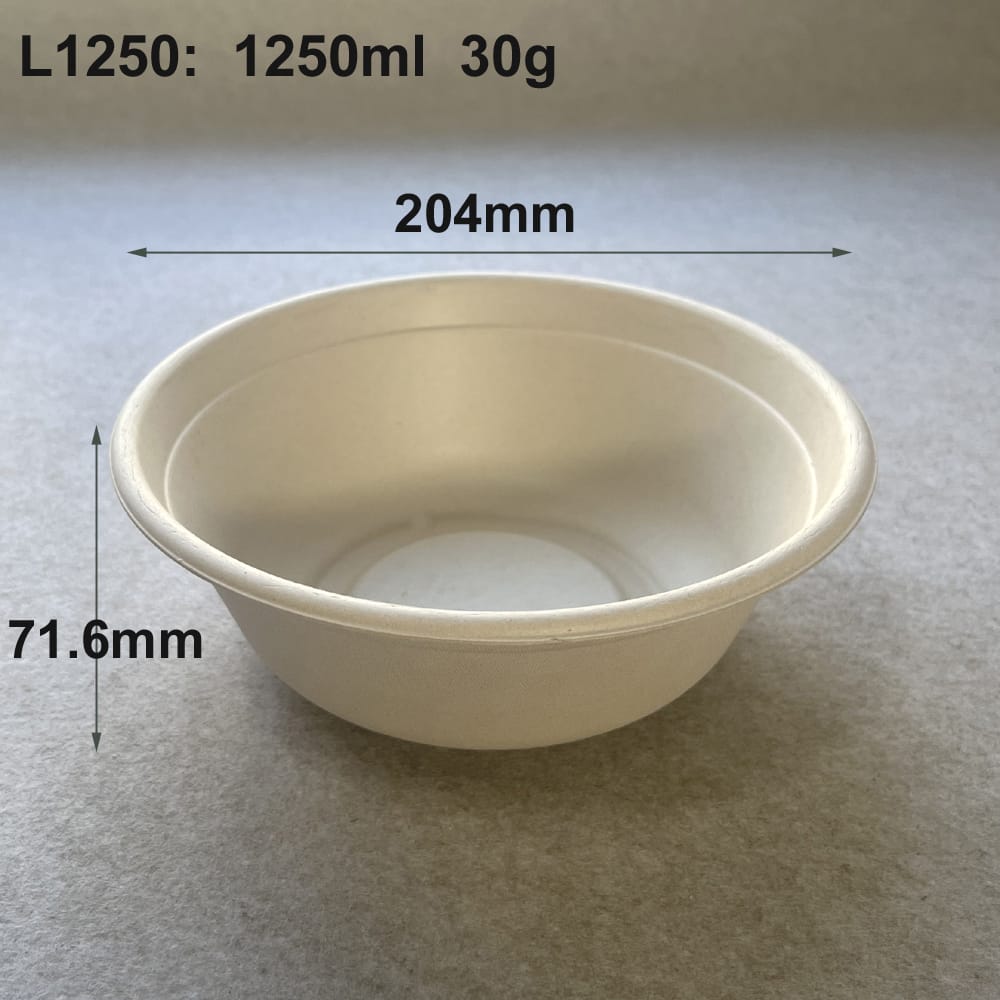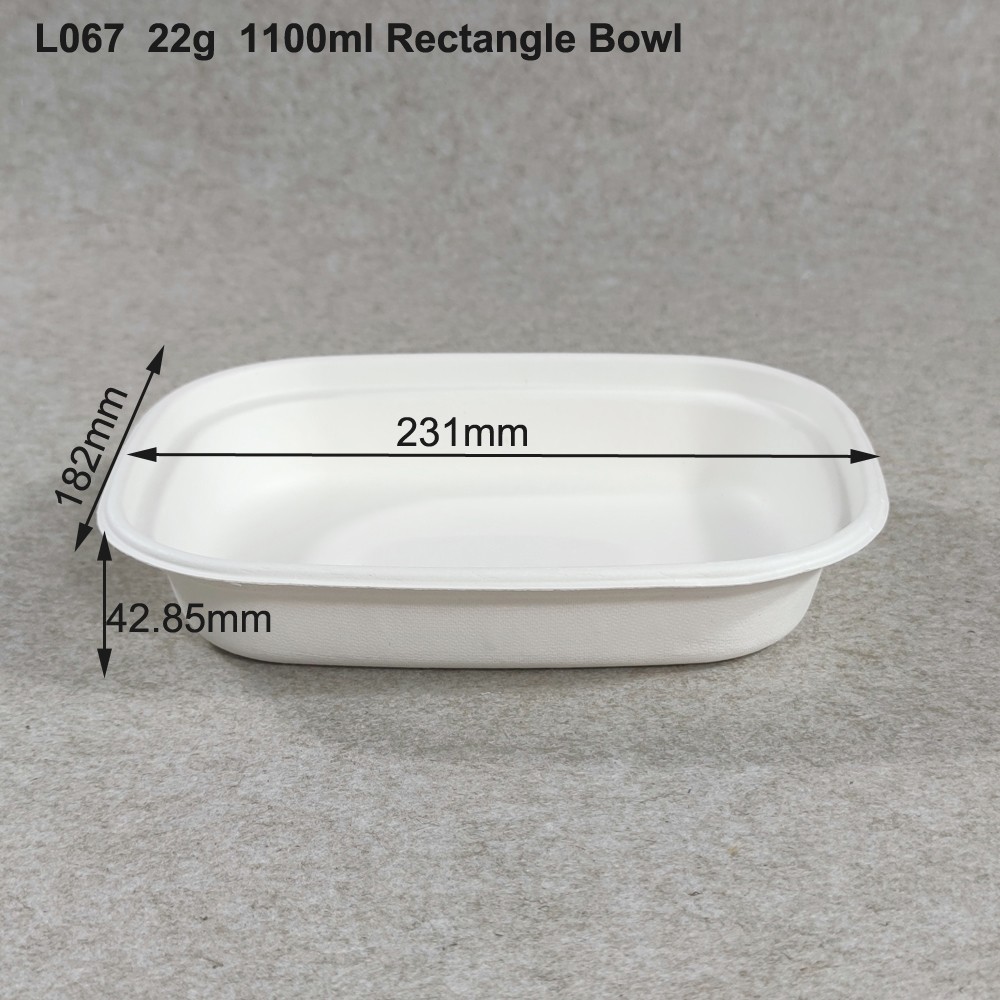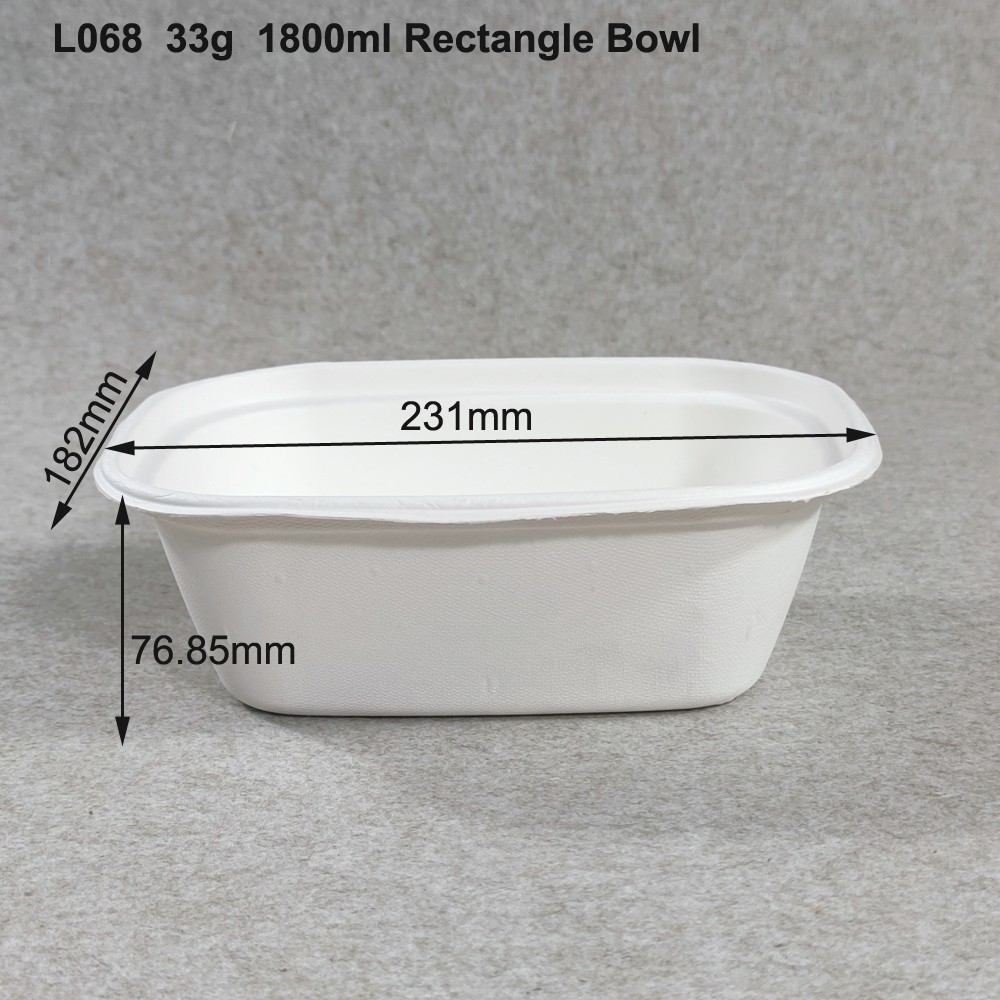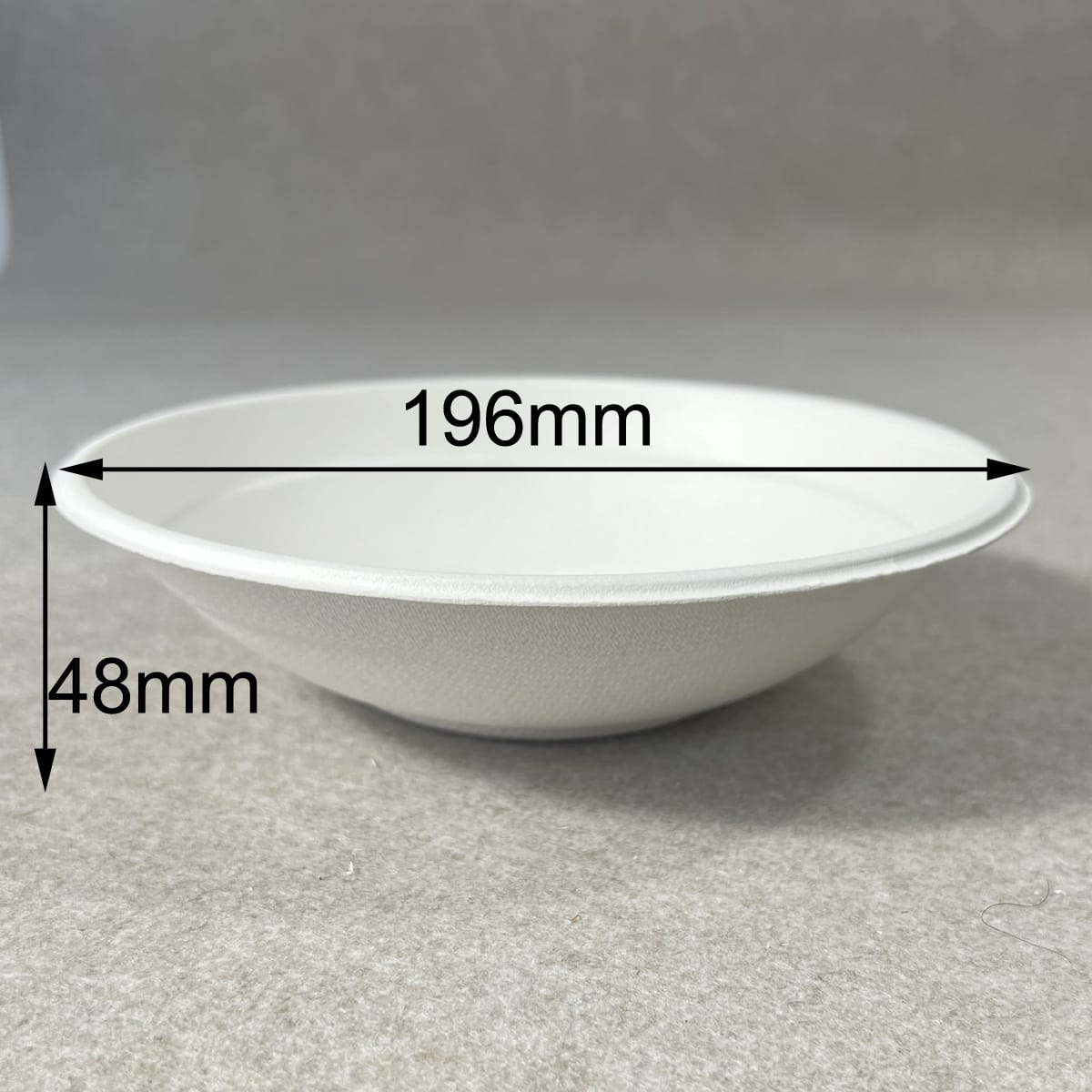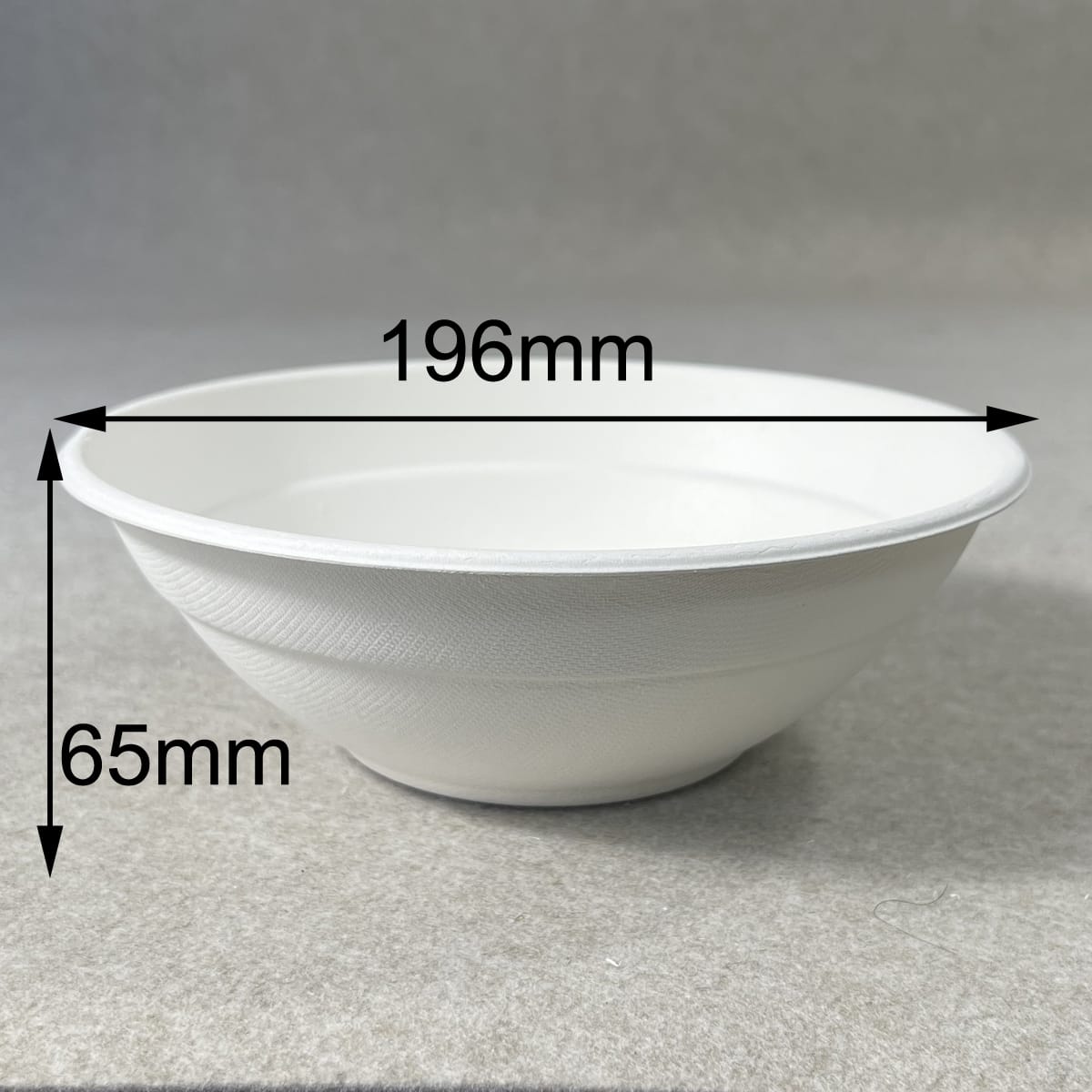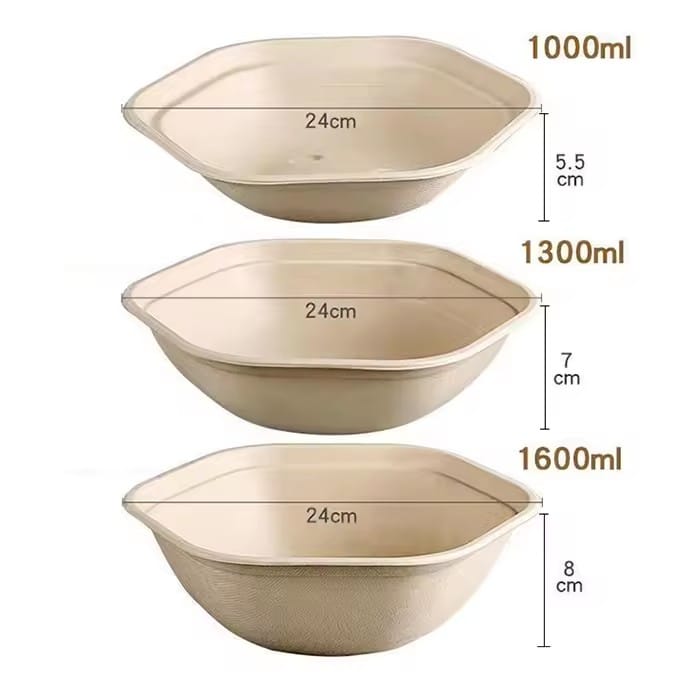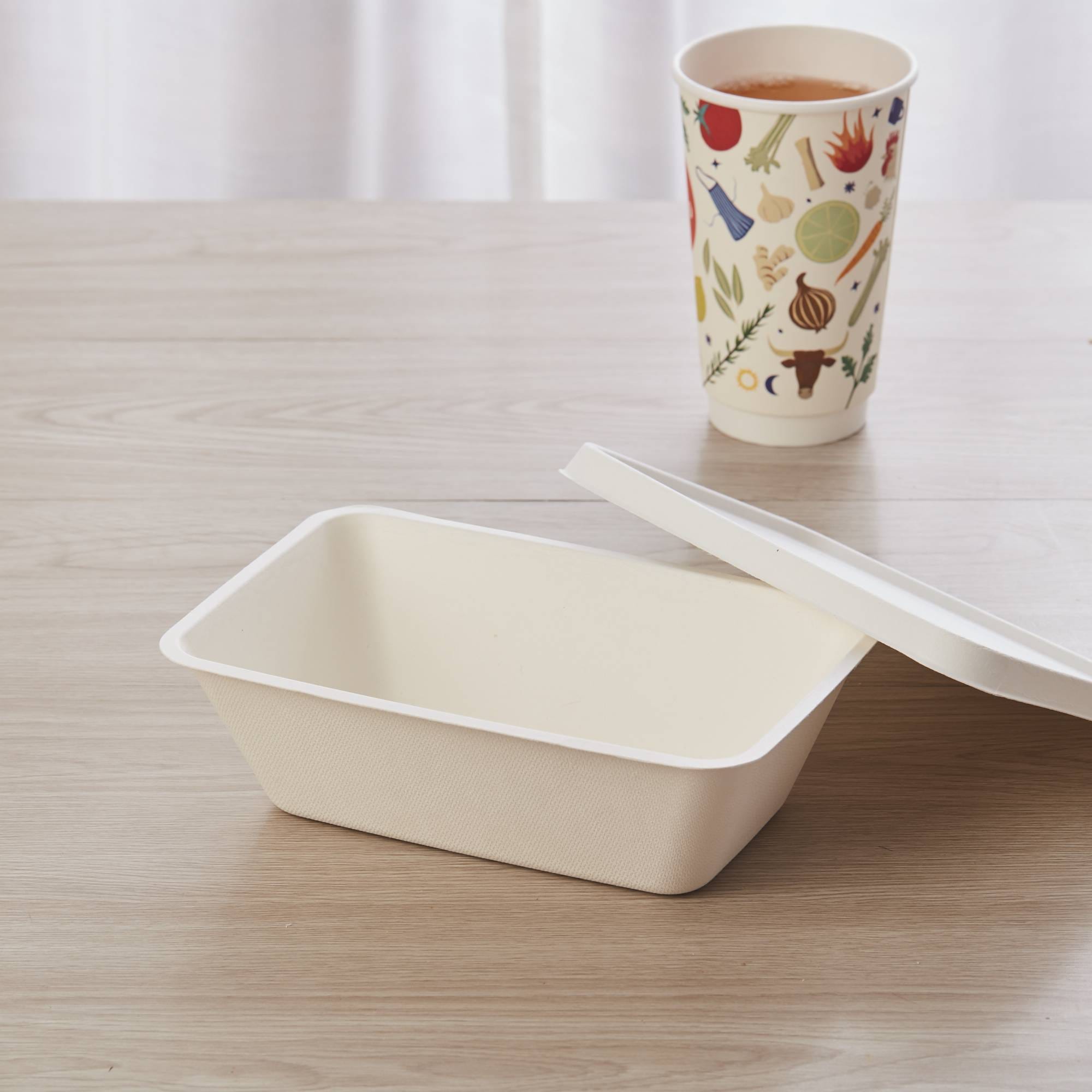Kompostierbare Lebensmittelbehälter
Compostable food containers are bio-based which are made using biodegradable materials with the same properties and support as plastic containers. Food containers can design and shape differently depending on the food type and how it is needed. These containers are ideal for restaurants since they don’t compromise on service while also willing to go green, compostable containers are just the way to do that.
Angebot einholen
- Bioleader® Biologisch abbaubares Geschirr
- Ausstellungsraum
- Kompostierbare Lebensmittelbehälter
- (Seite 2)
Das könnte Sie auch interessieren
Kompostierbare Lebensmittelbehälter
About Compostable Food Containers
Compostable food containers were created to aid create more environmentally-friendly packaging for food. The containers come in multiple configurations 6×6 inches, 450 ml to 1800 ml 9×9 multi compartments of 1, 2, 3 or 5 max portions. The various configurations are there to aid serve different size meals and dinners.
We, China Bioleader, are a trusted manufacturer and an answer to all your compostable containers’ needs. Along with being affordable, our containers provide a great alternative to wrapping food in single-use packaging material since they are compostable and biodegradable.
Kostenloses Muster erhalten
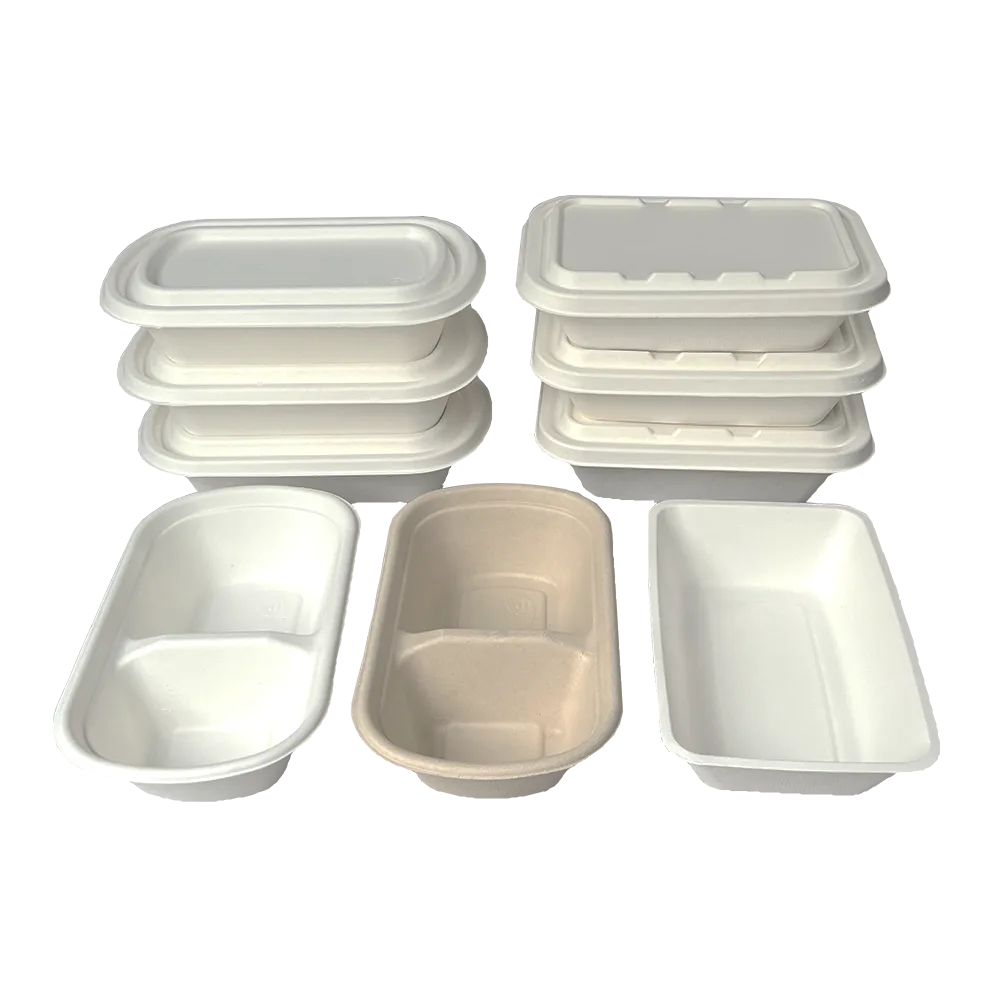
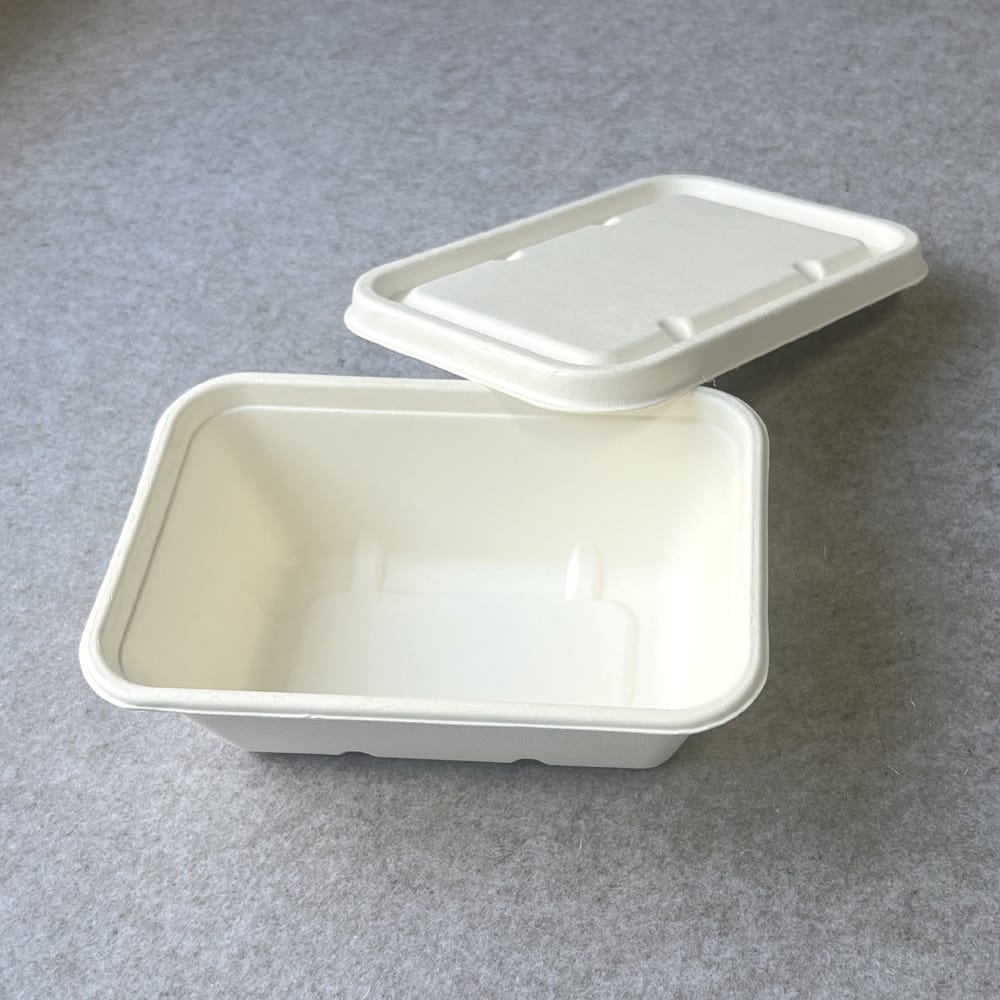
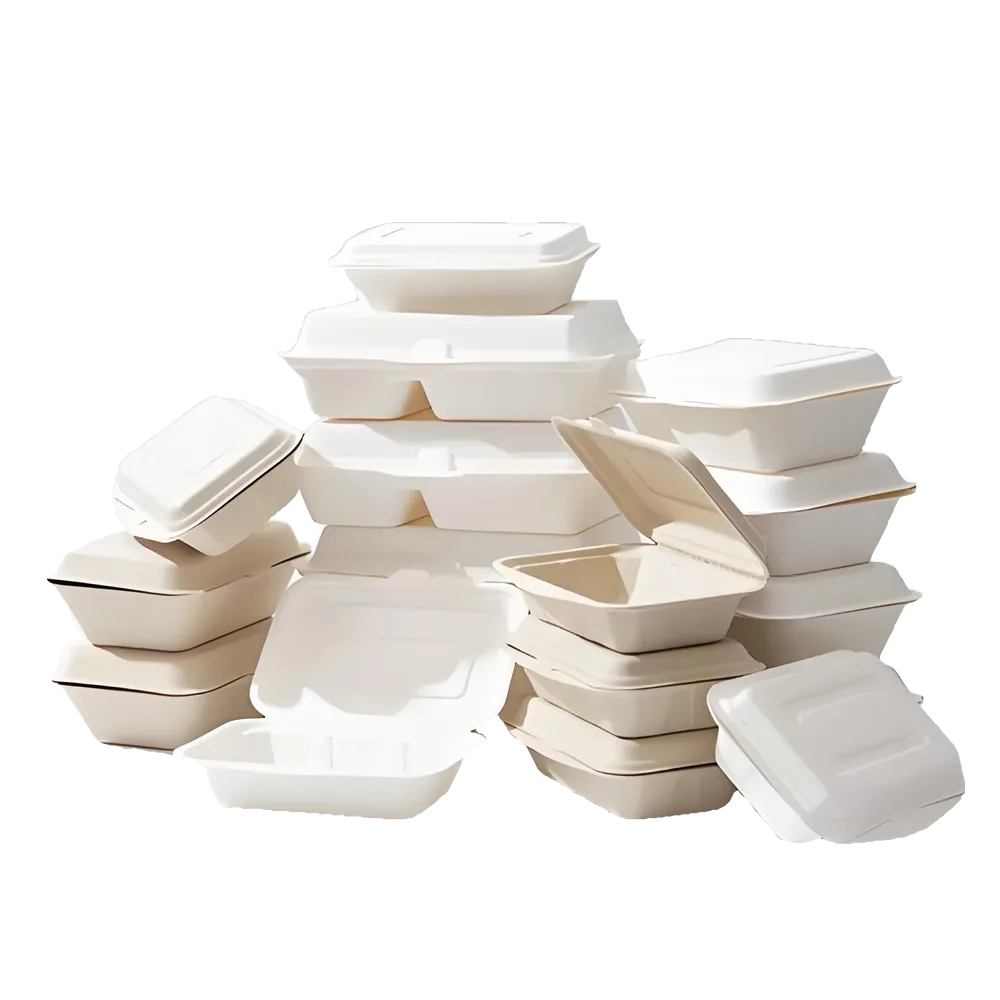

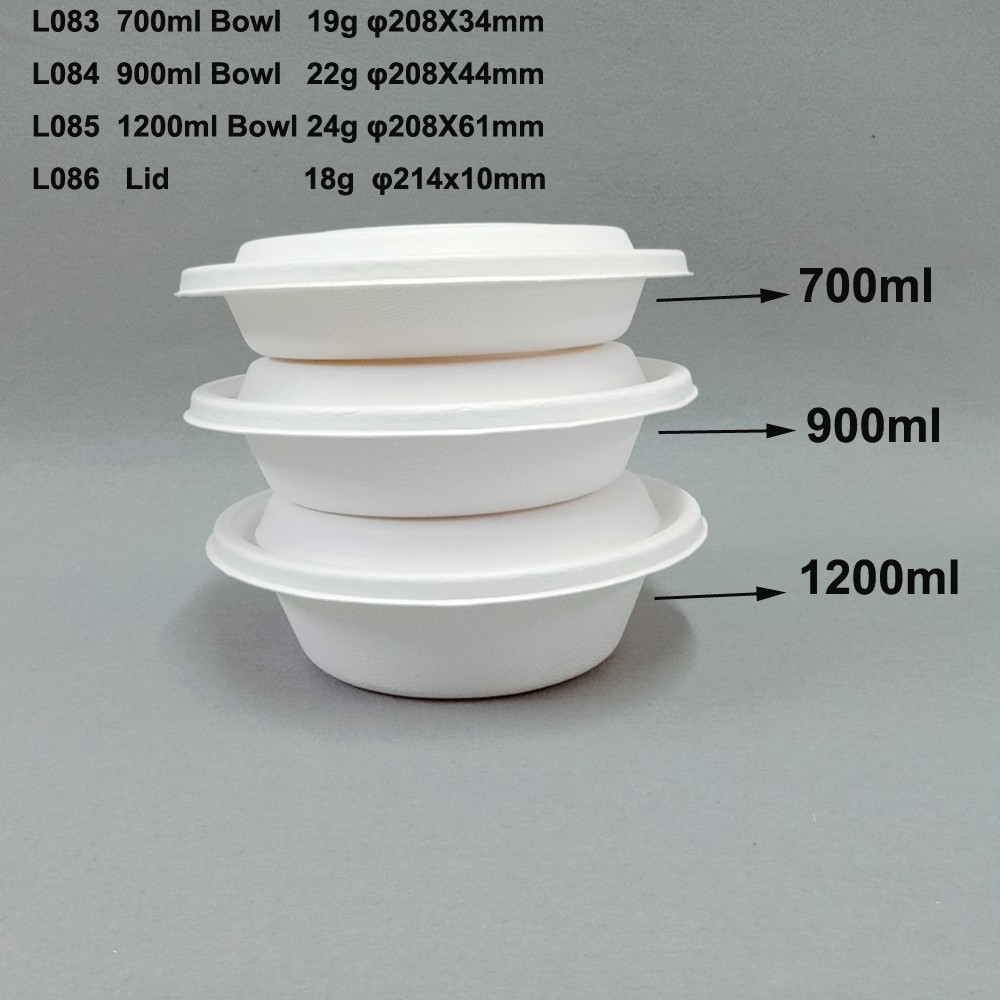
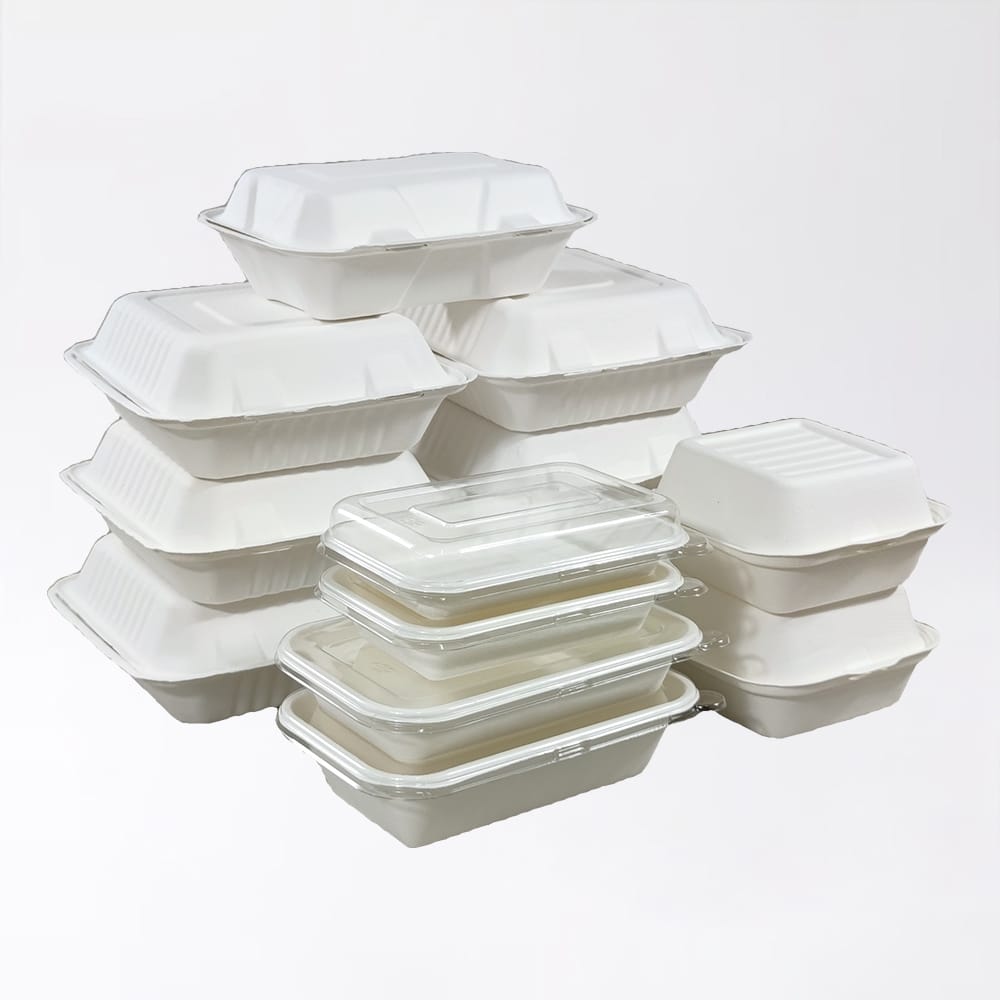
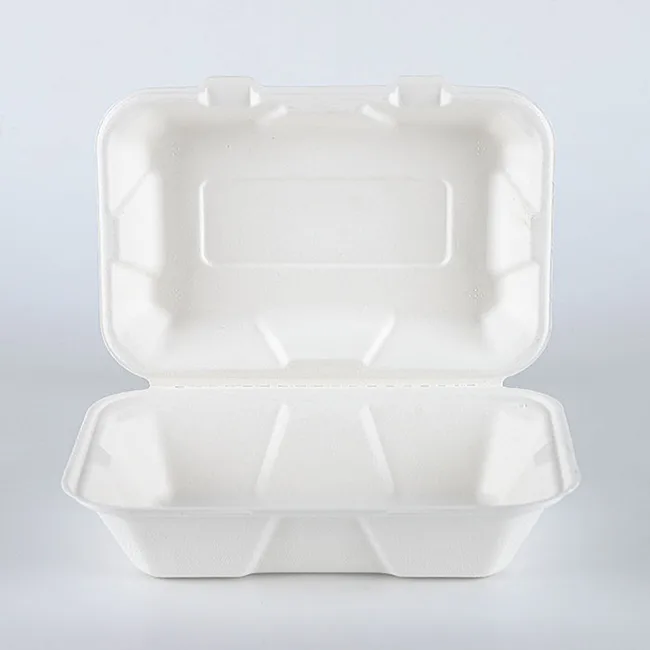

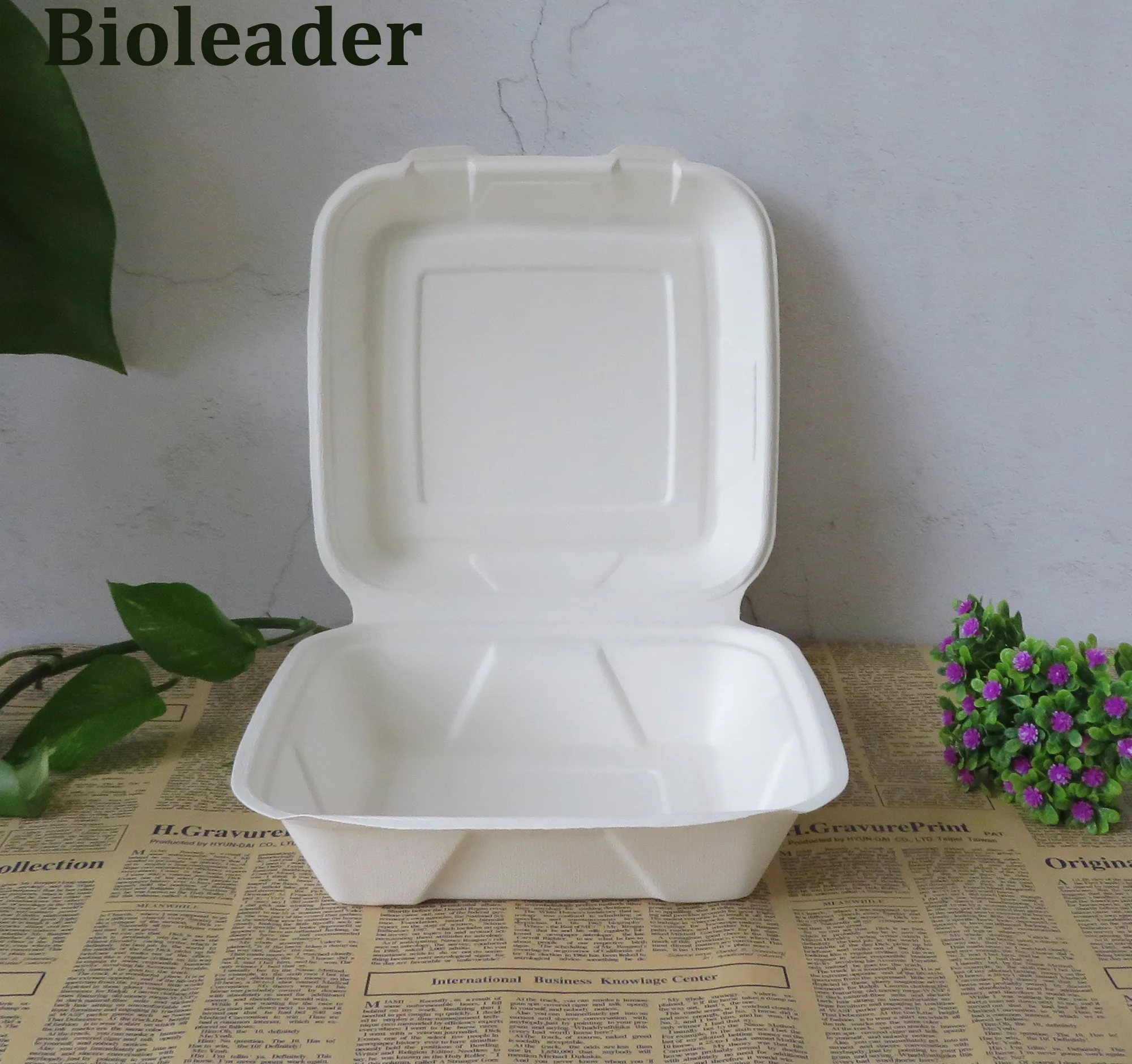
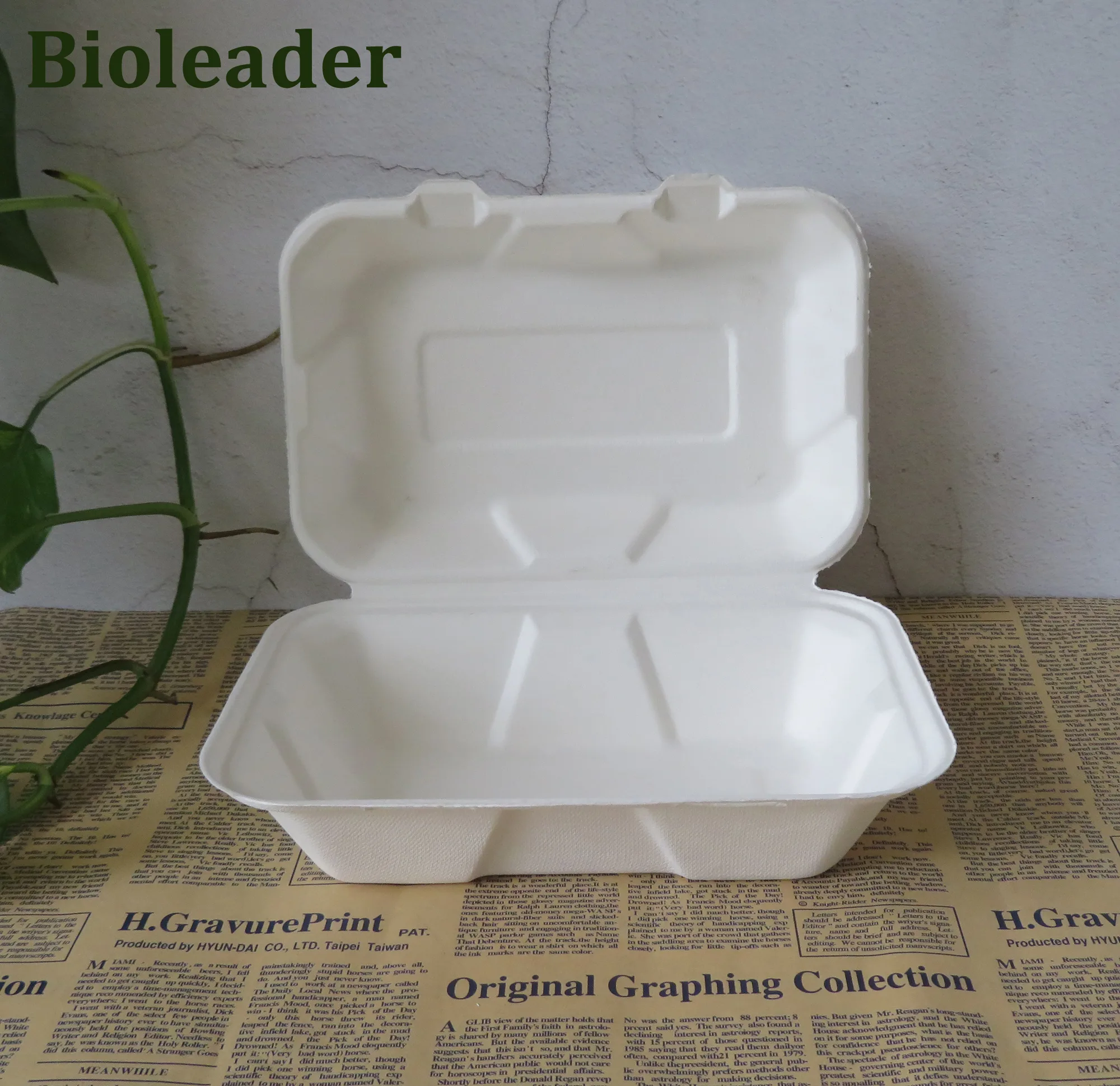
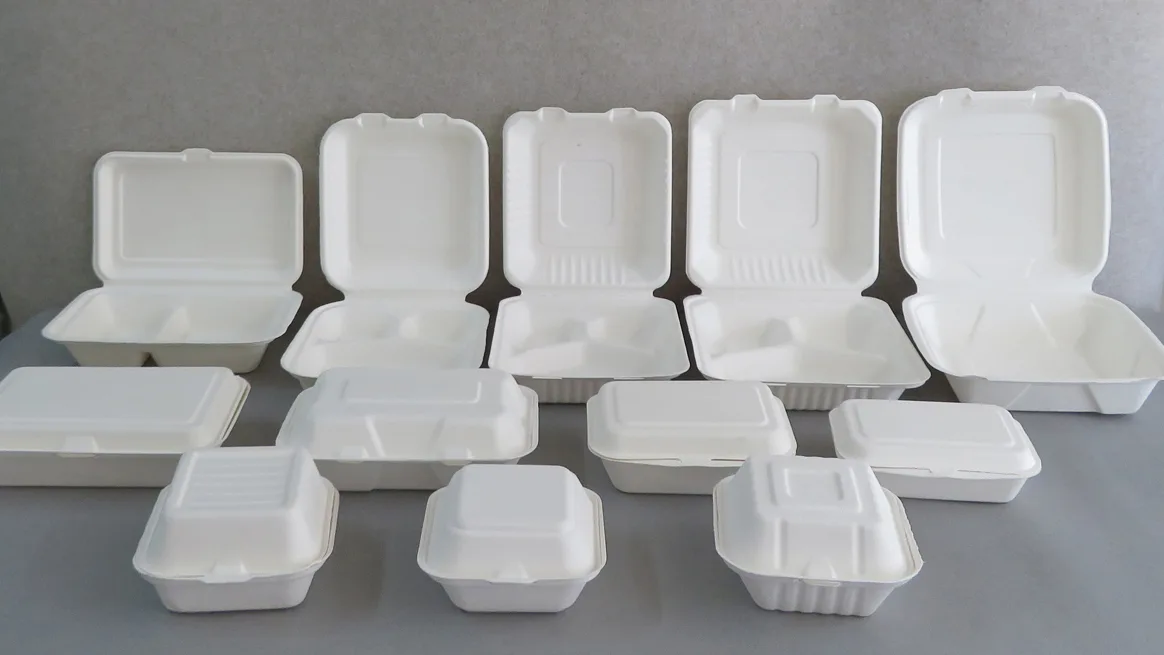
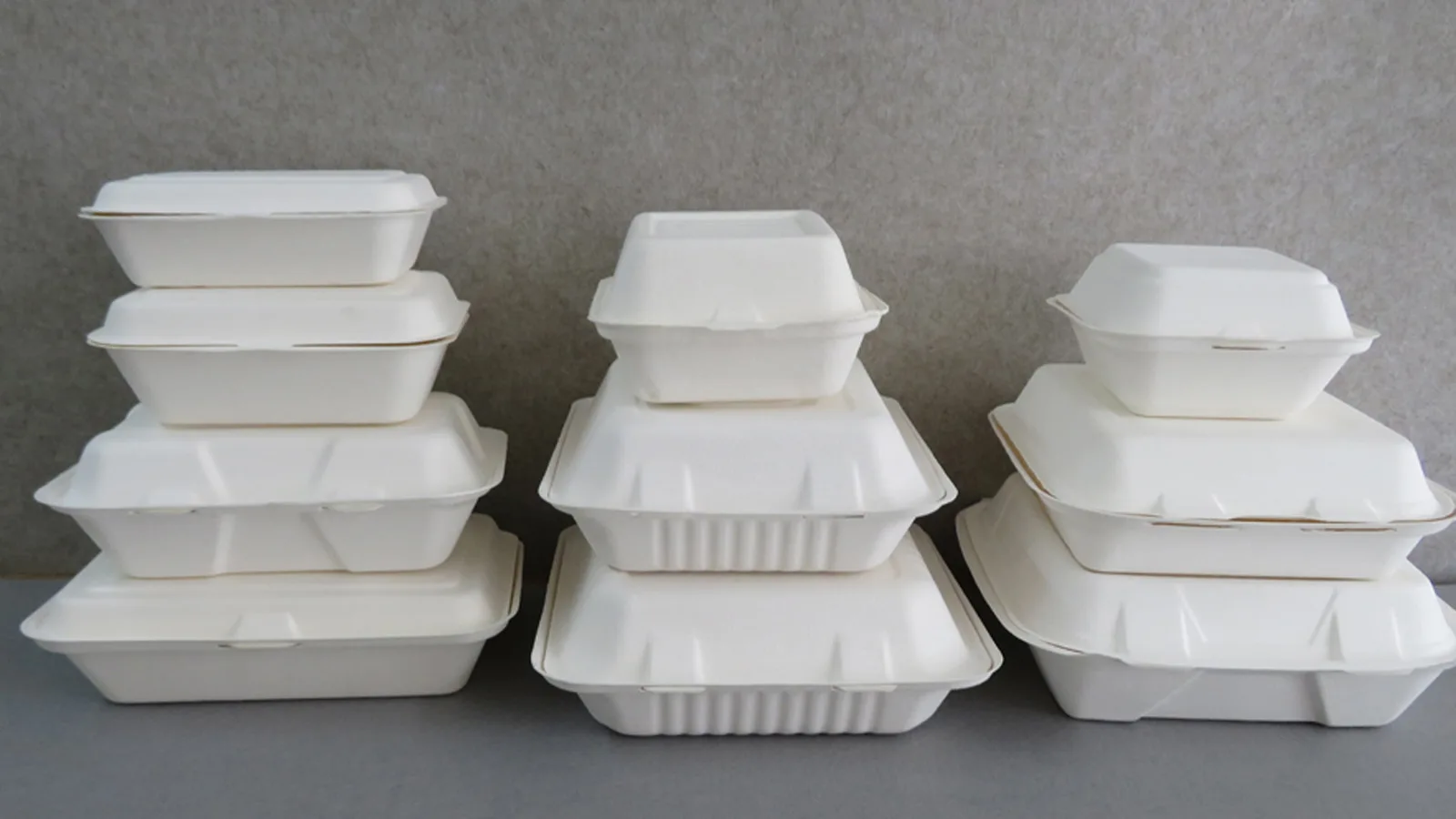
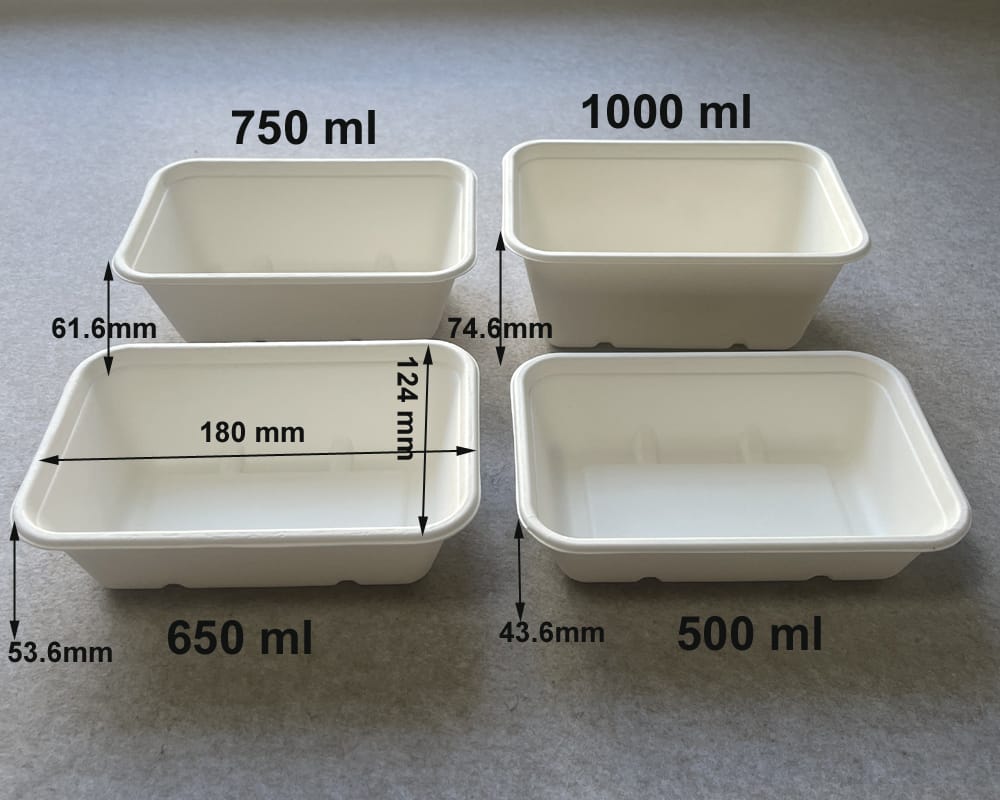



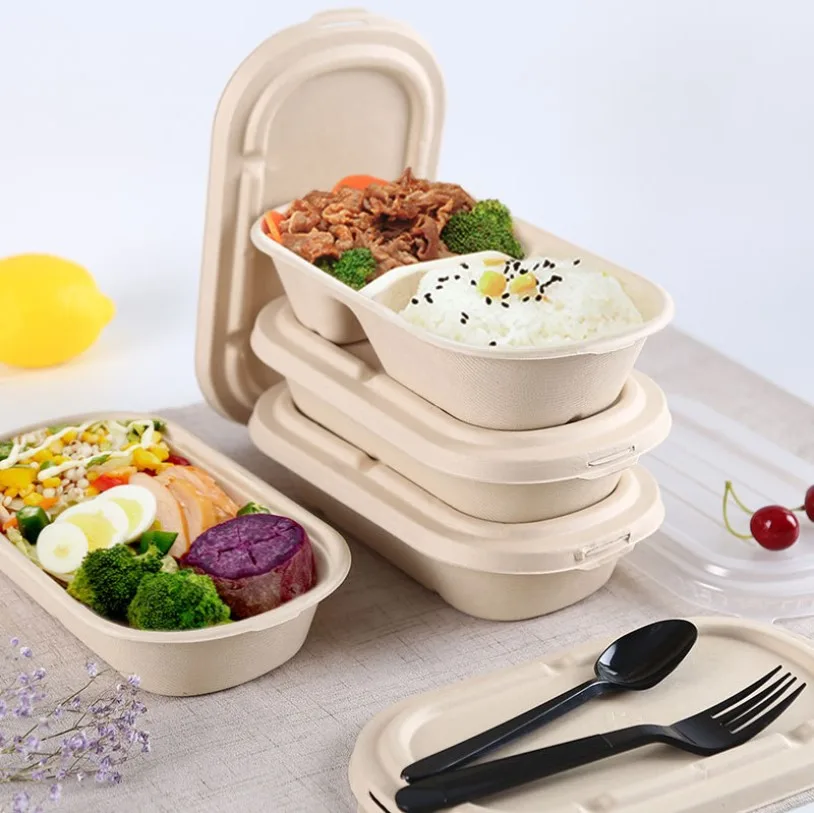
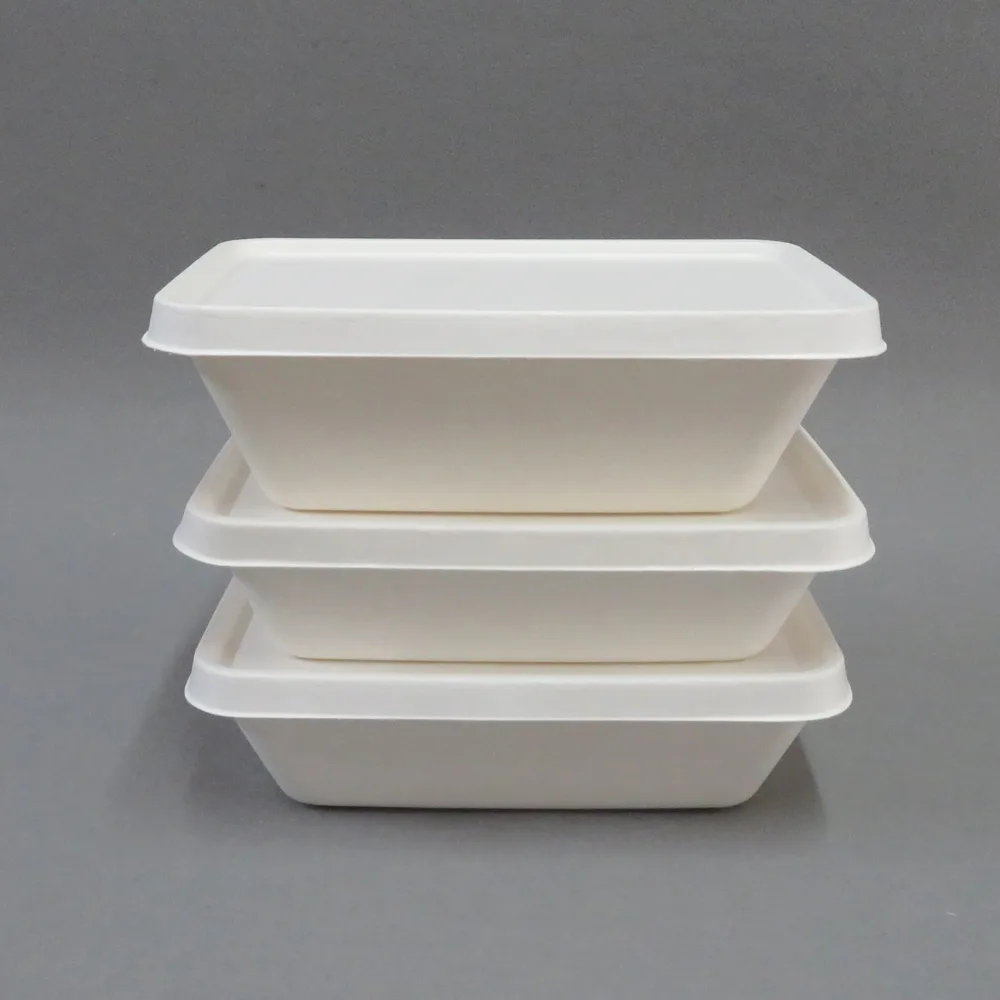
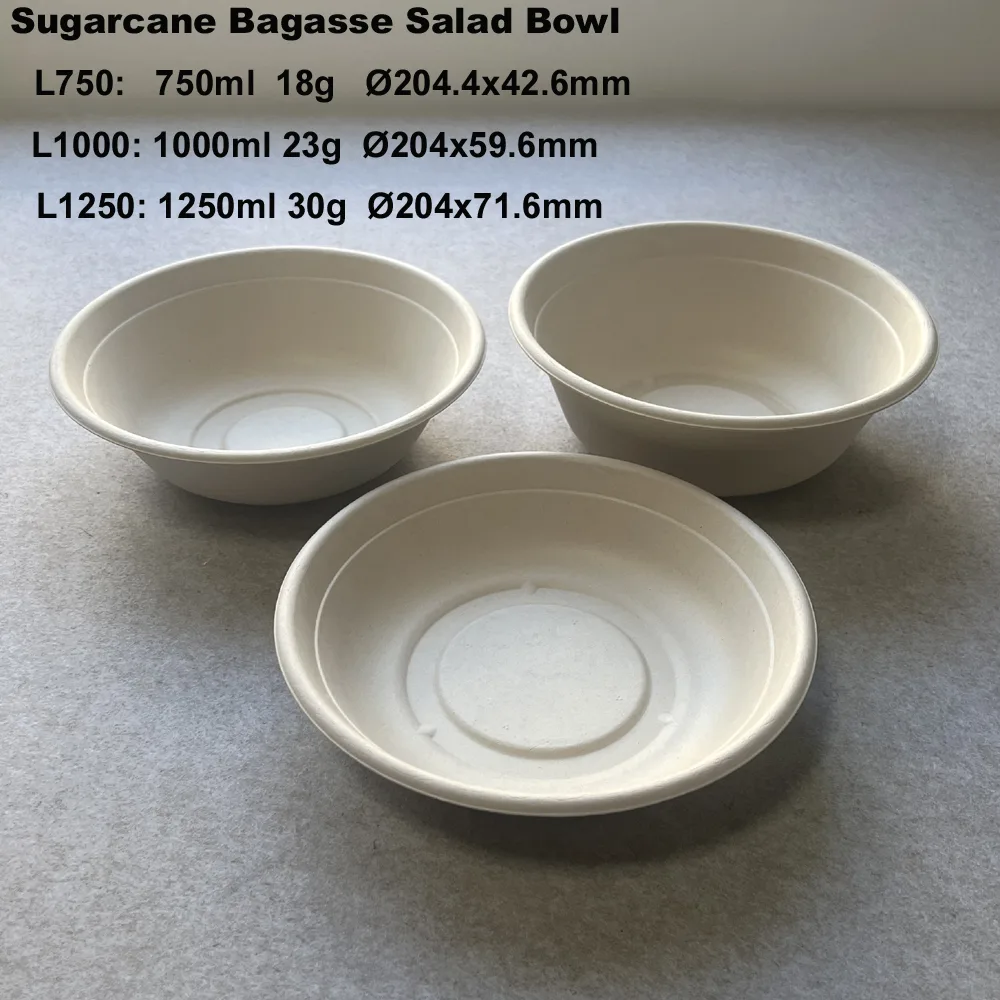
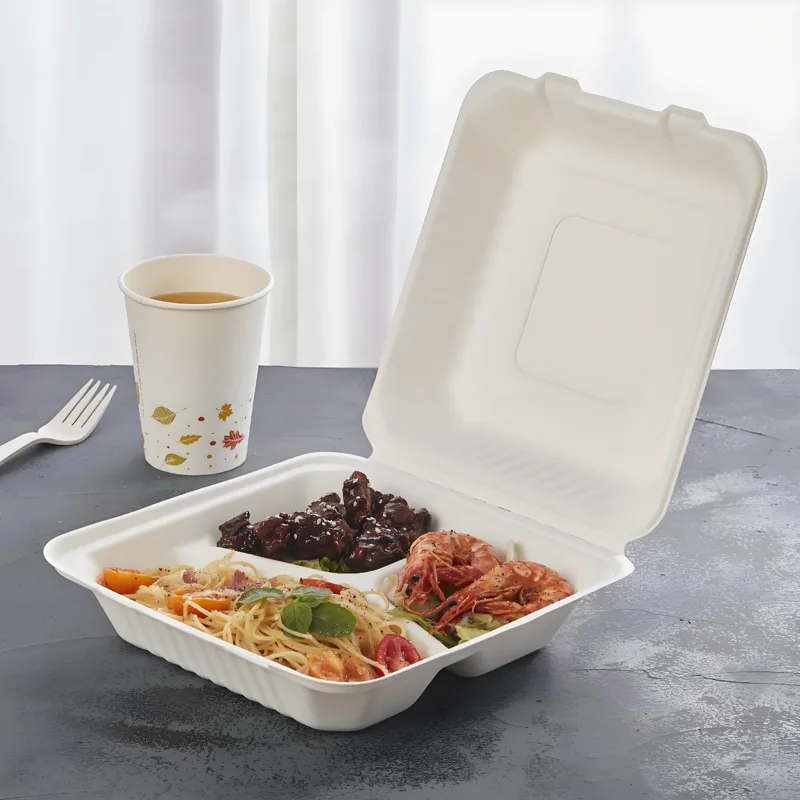
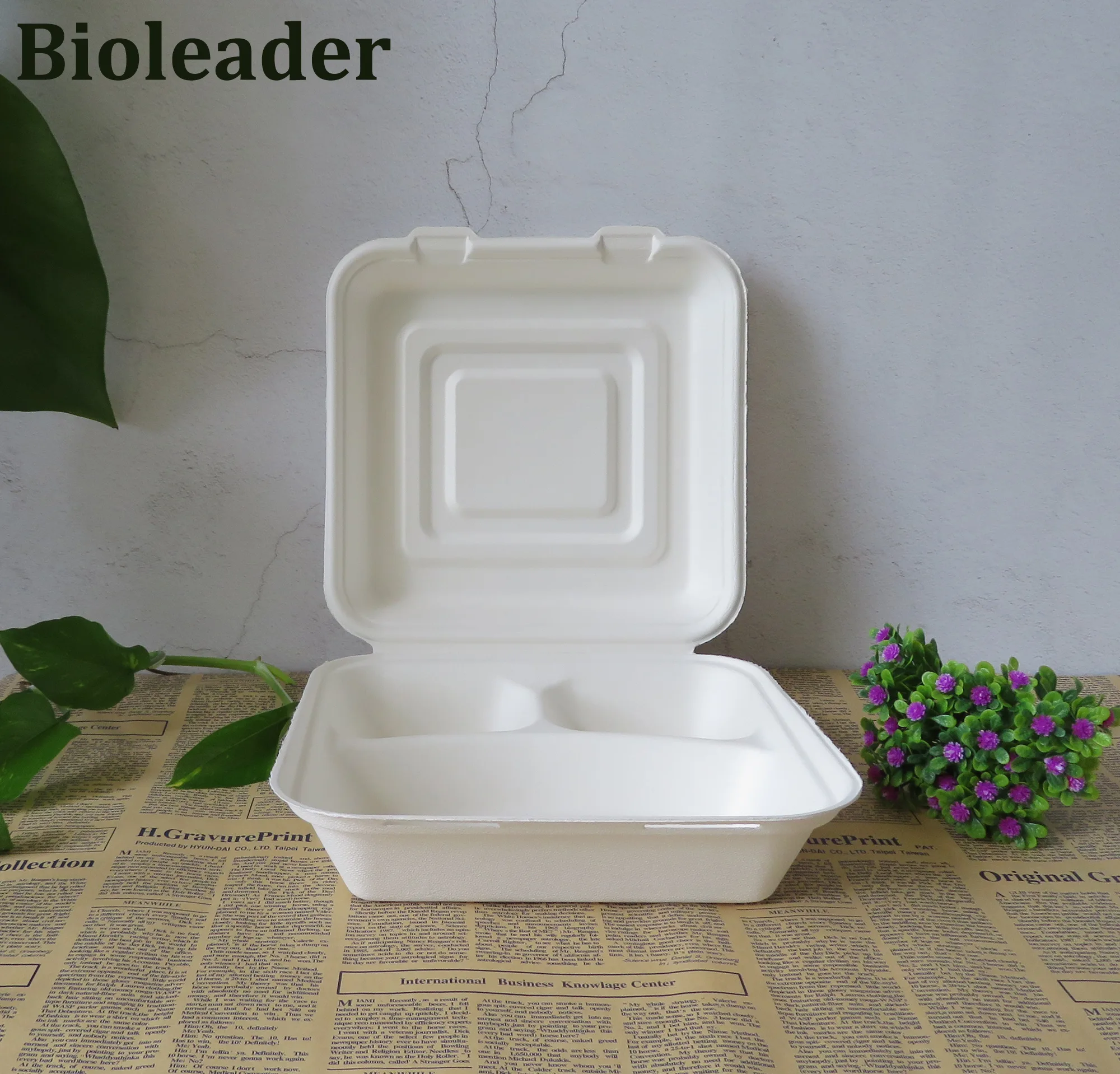

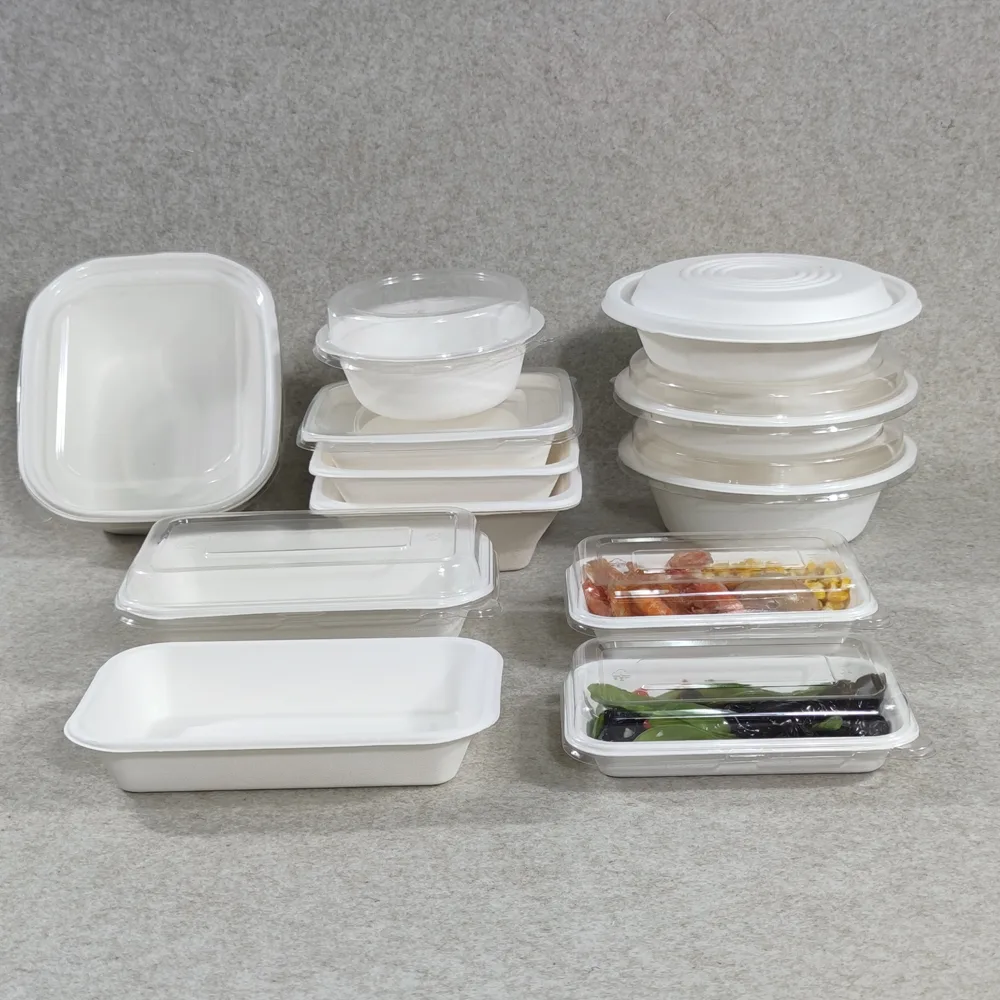



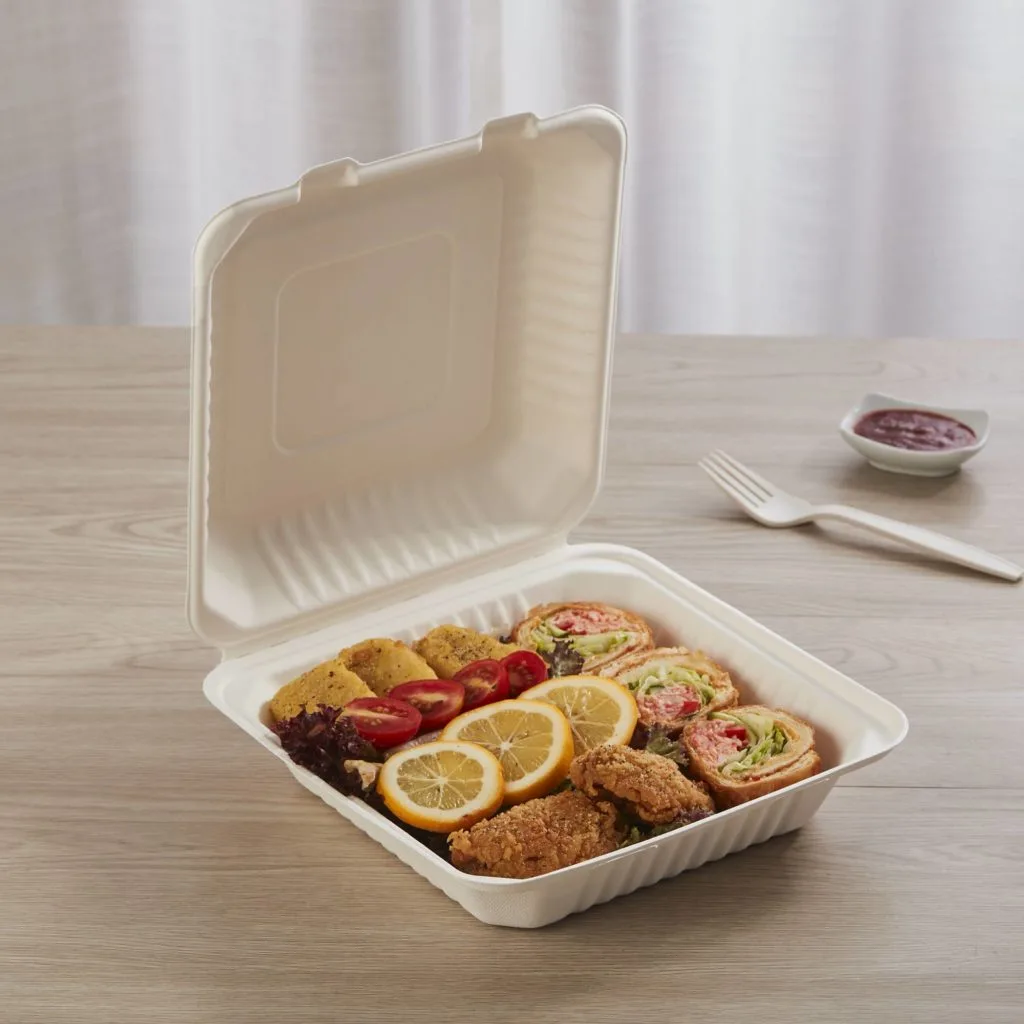
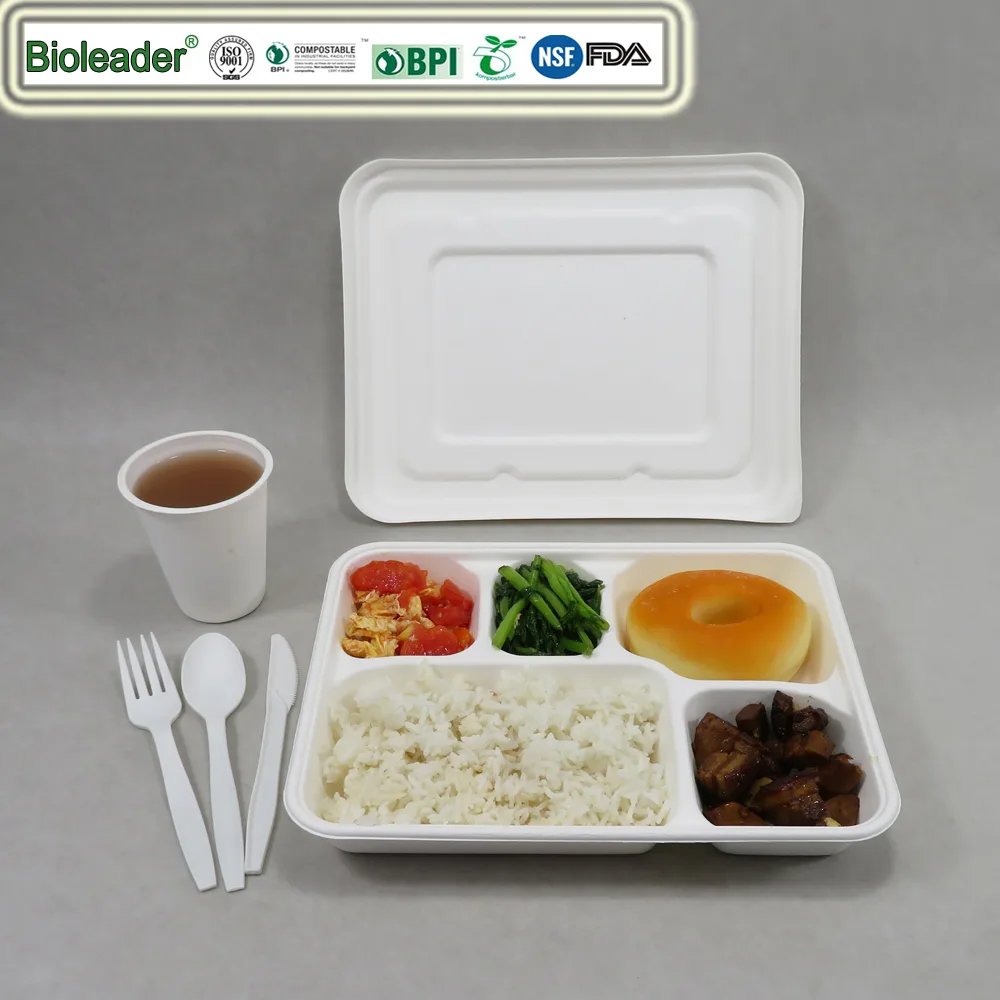
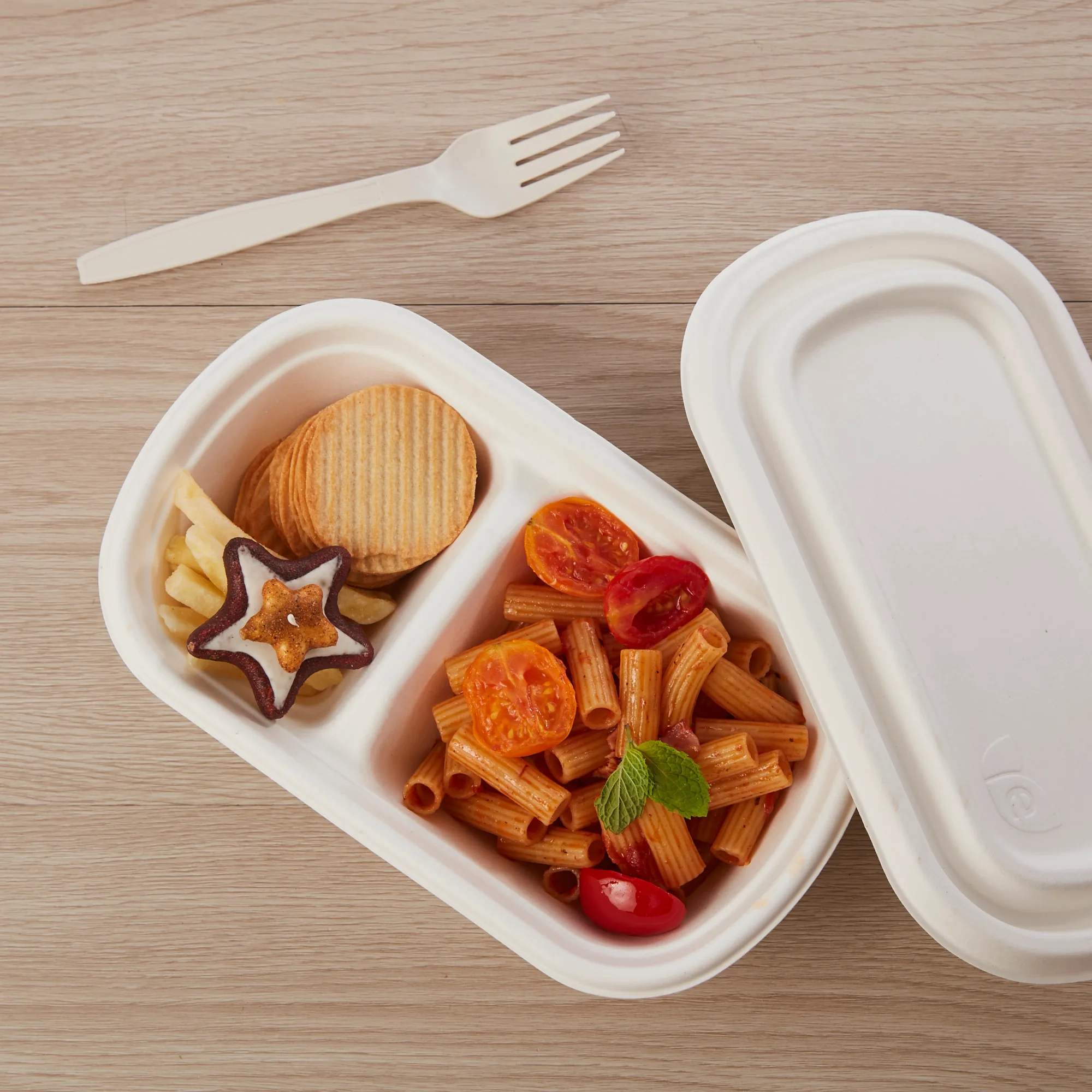
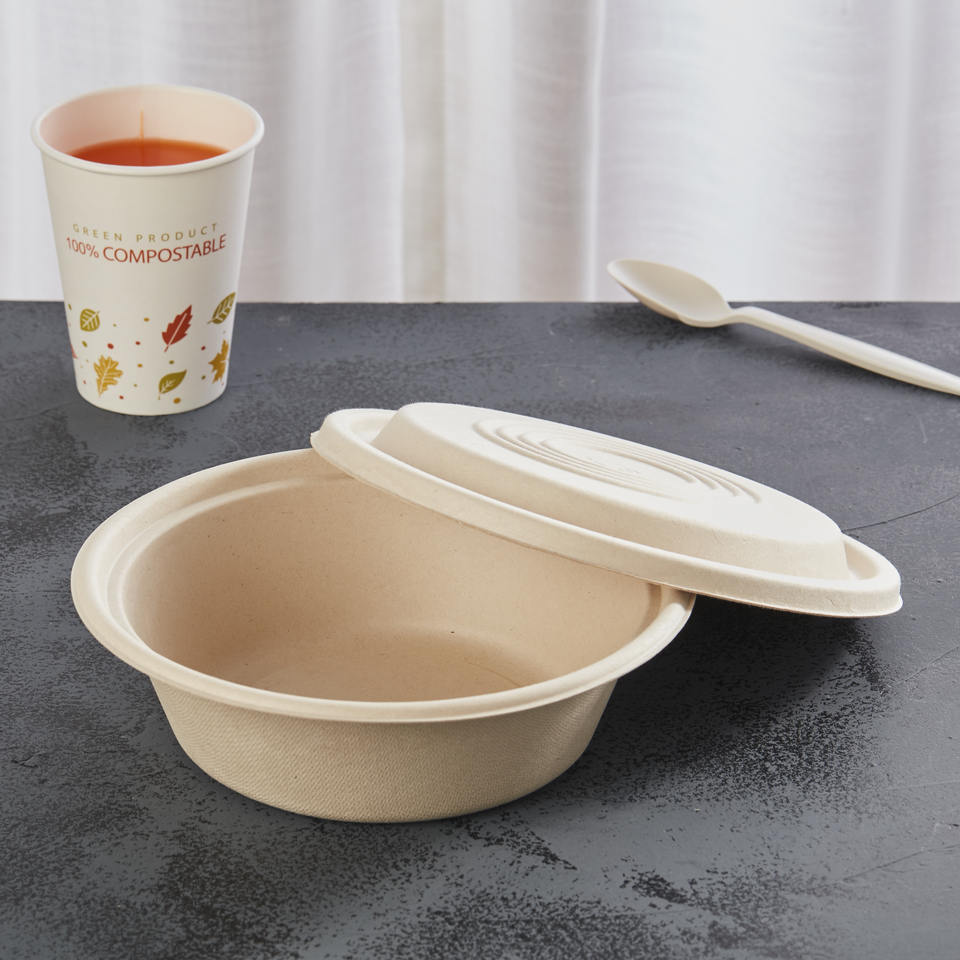
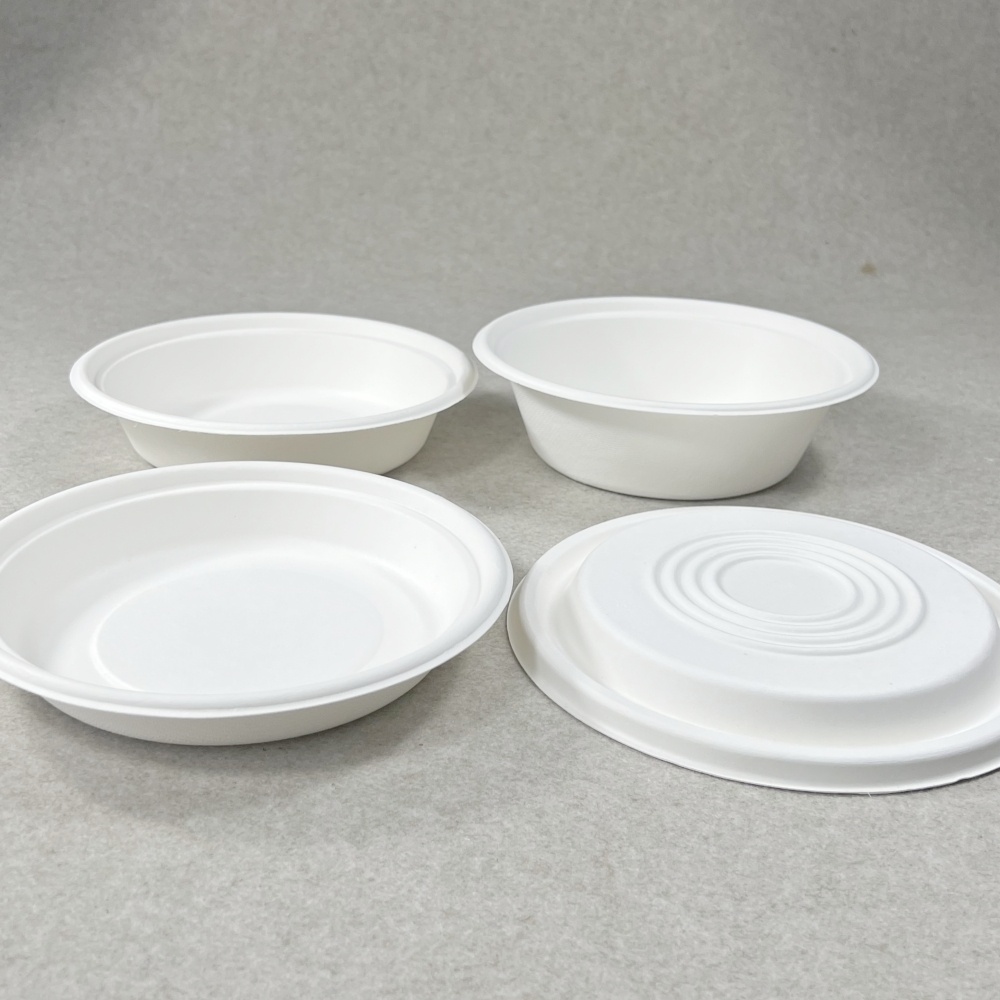

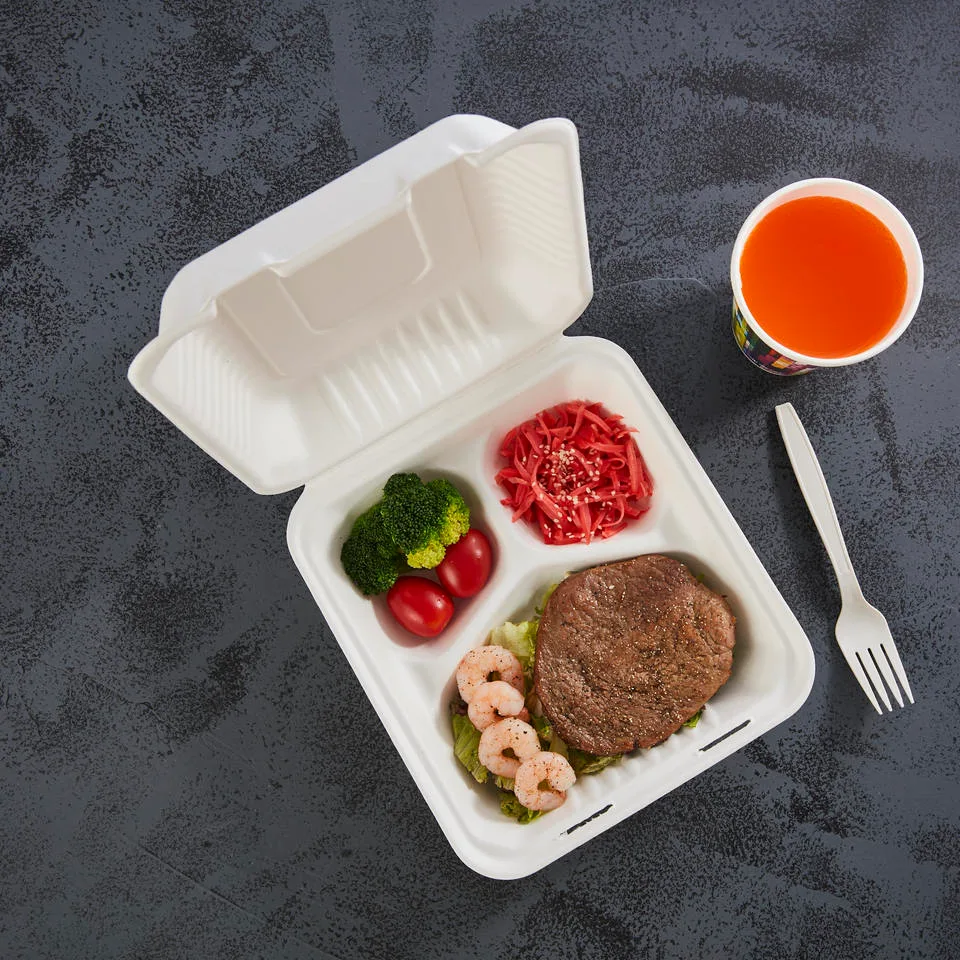
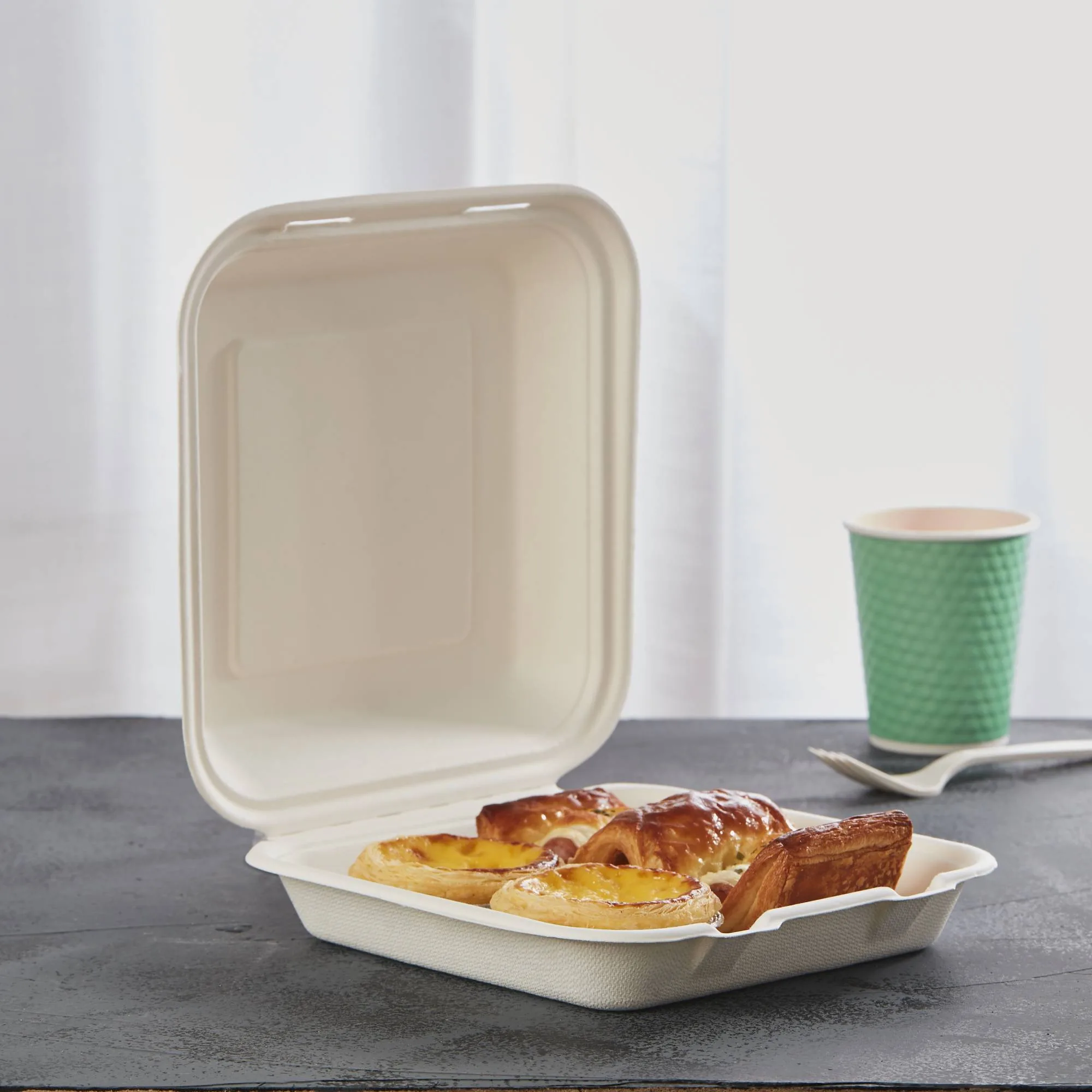

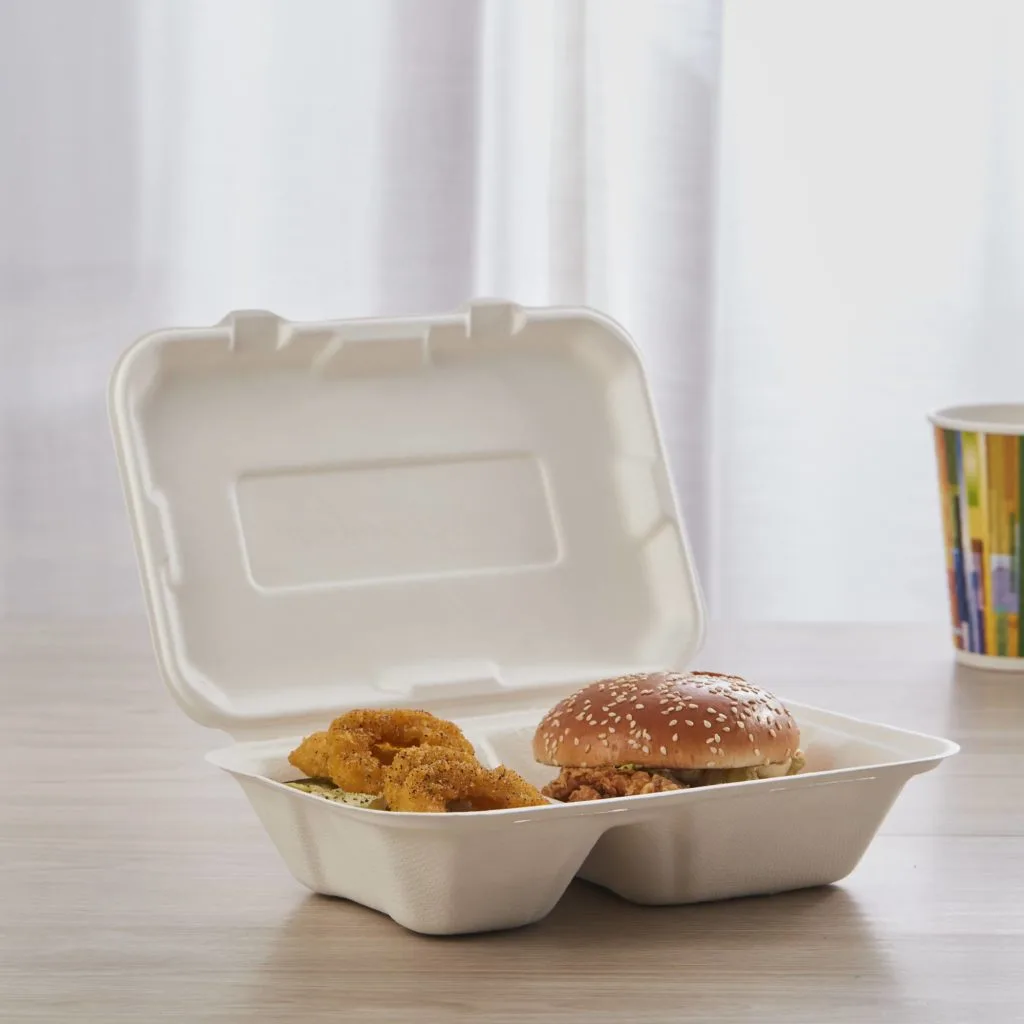


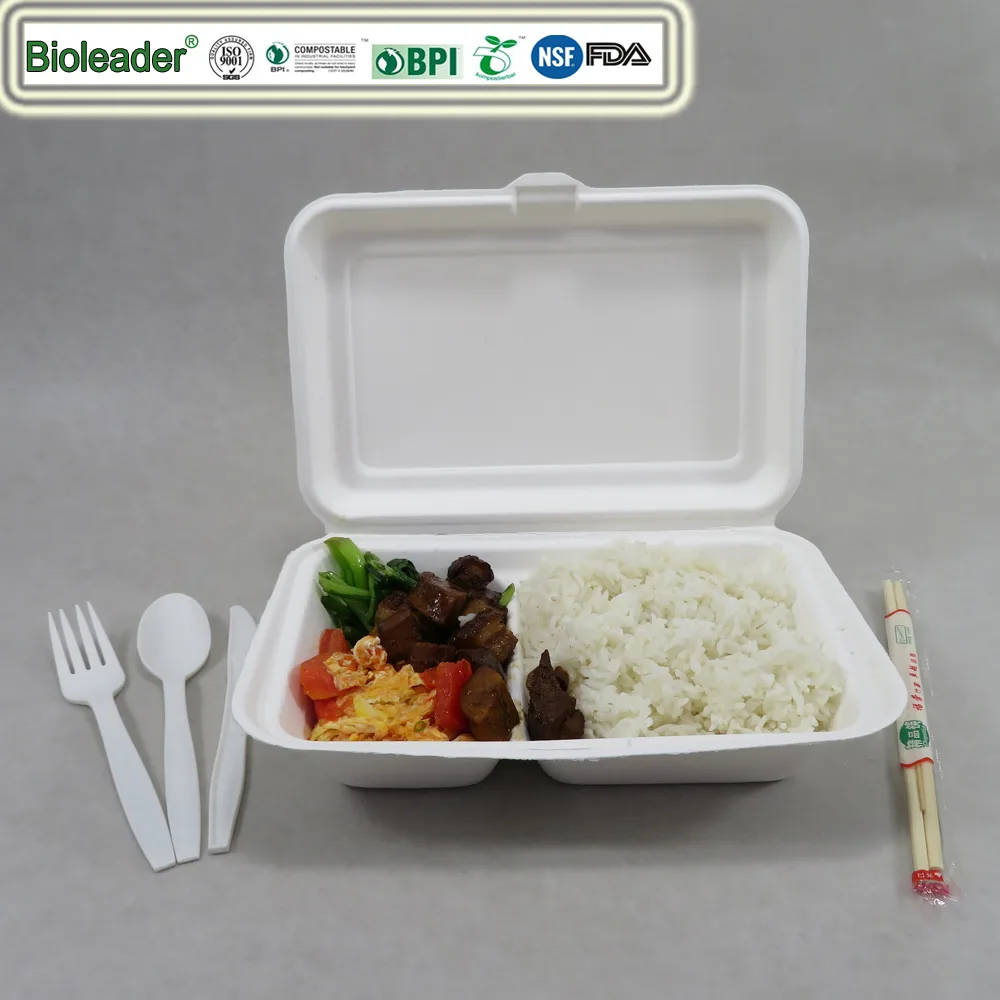
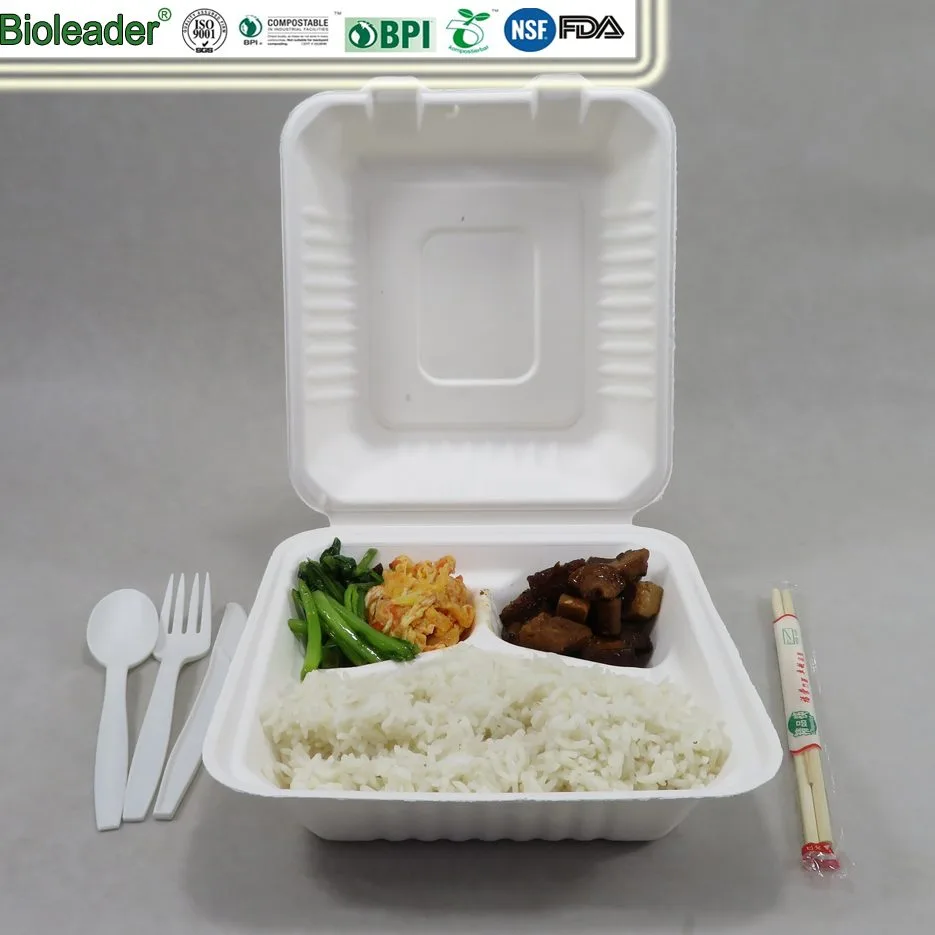
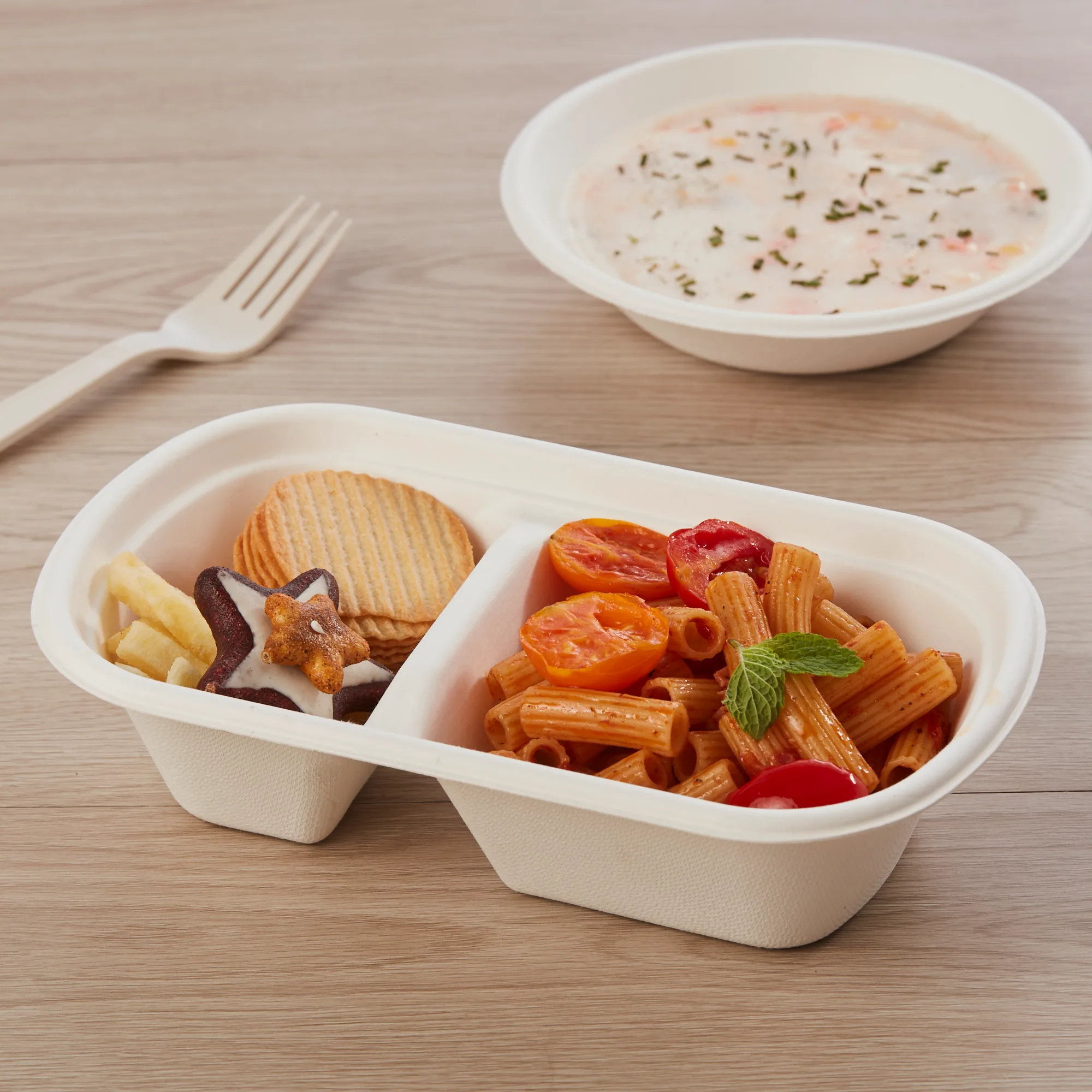

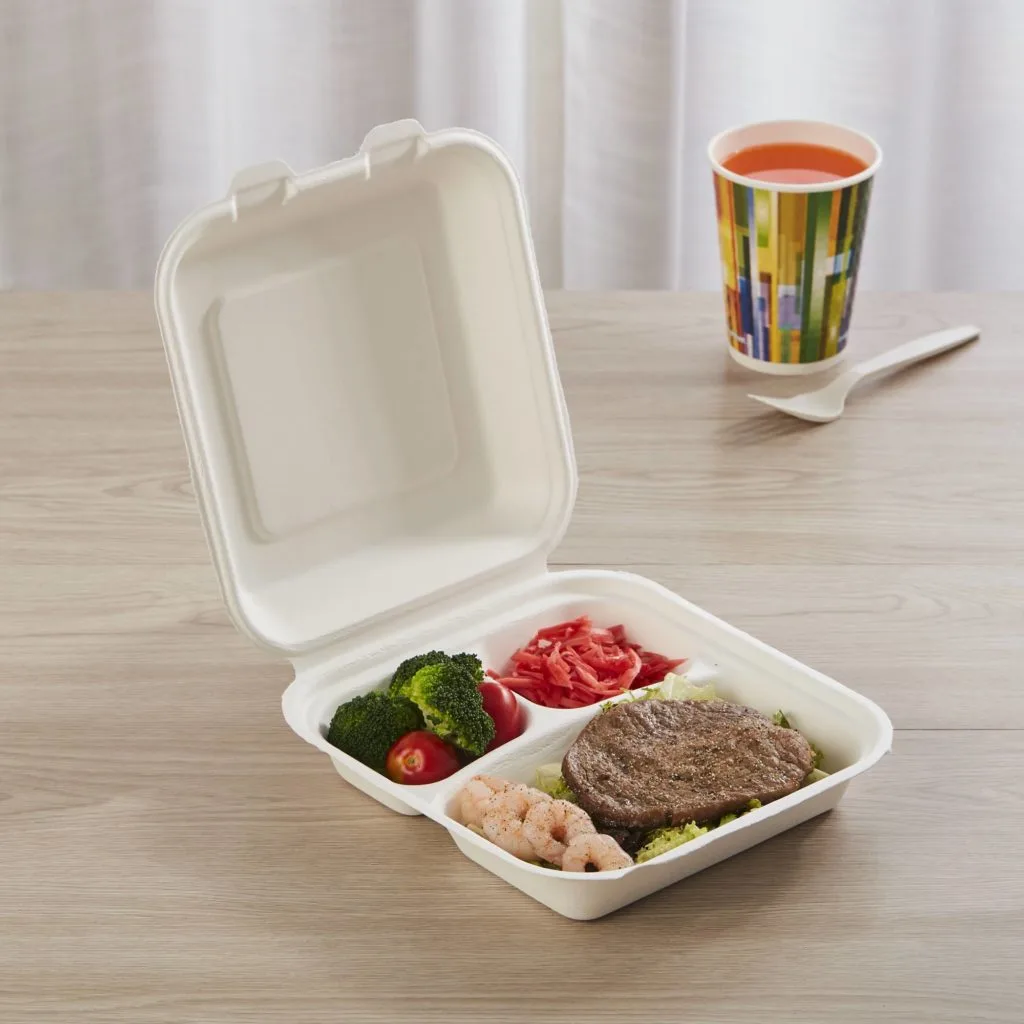

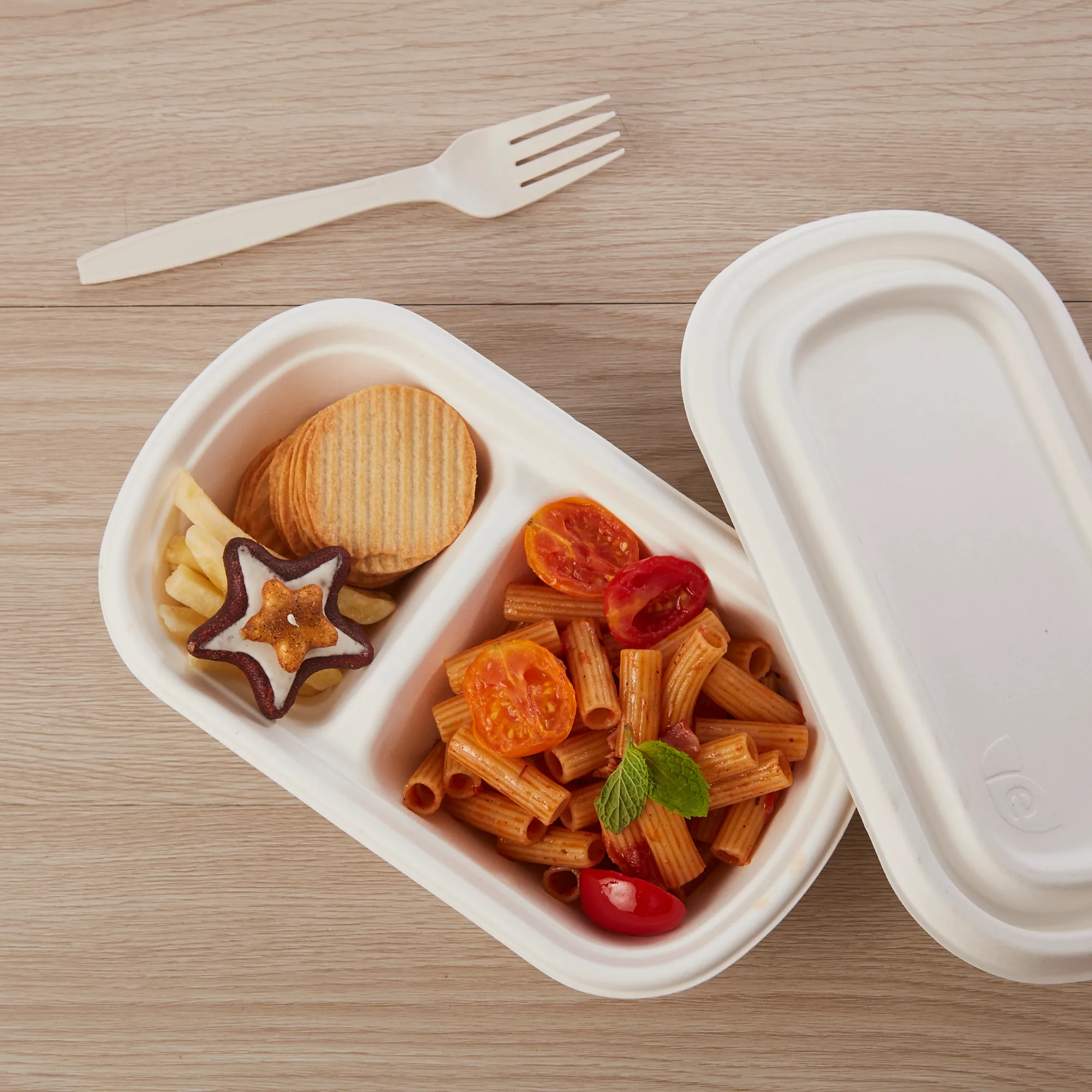
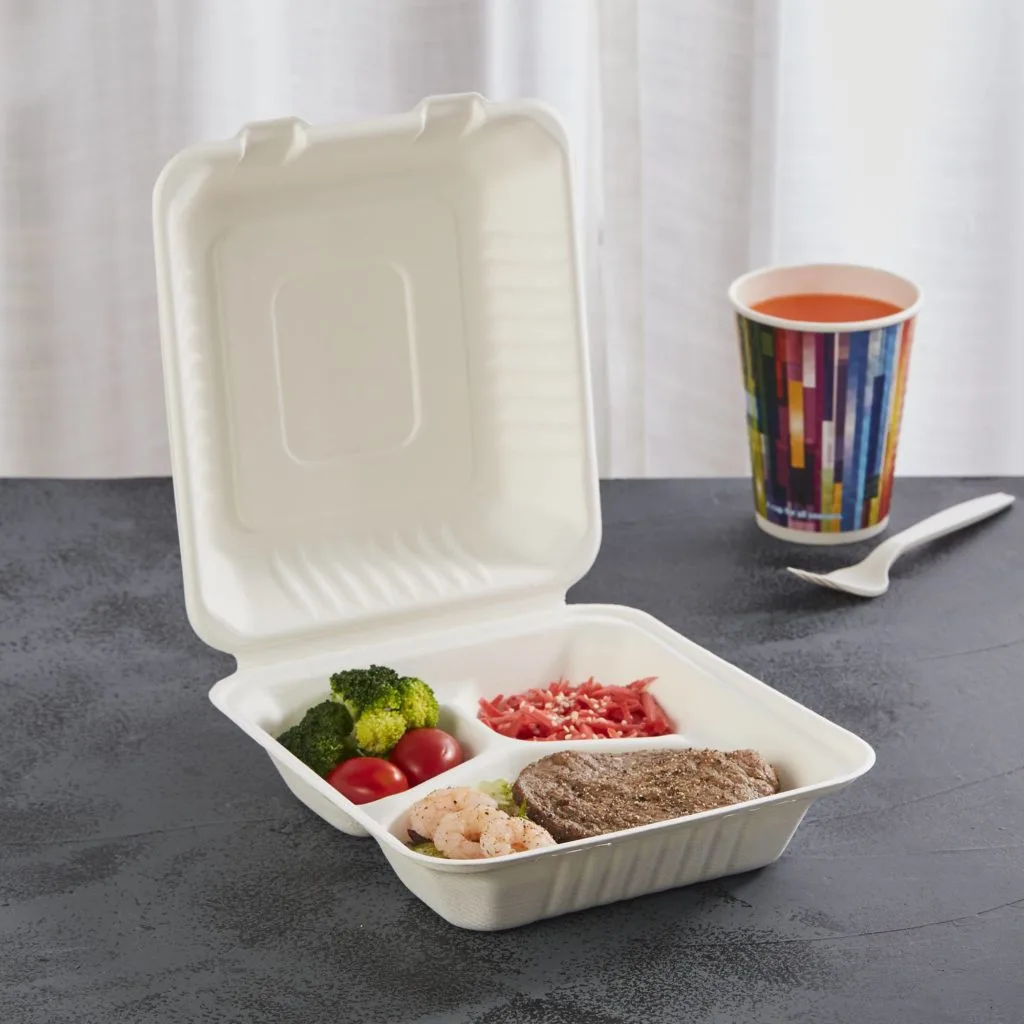

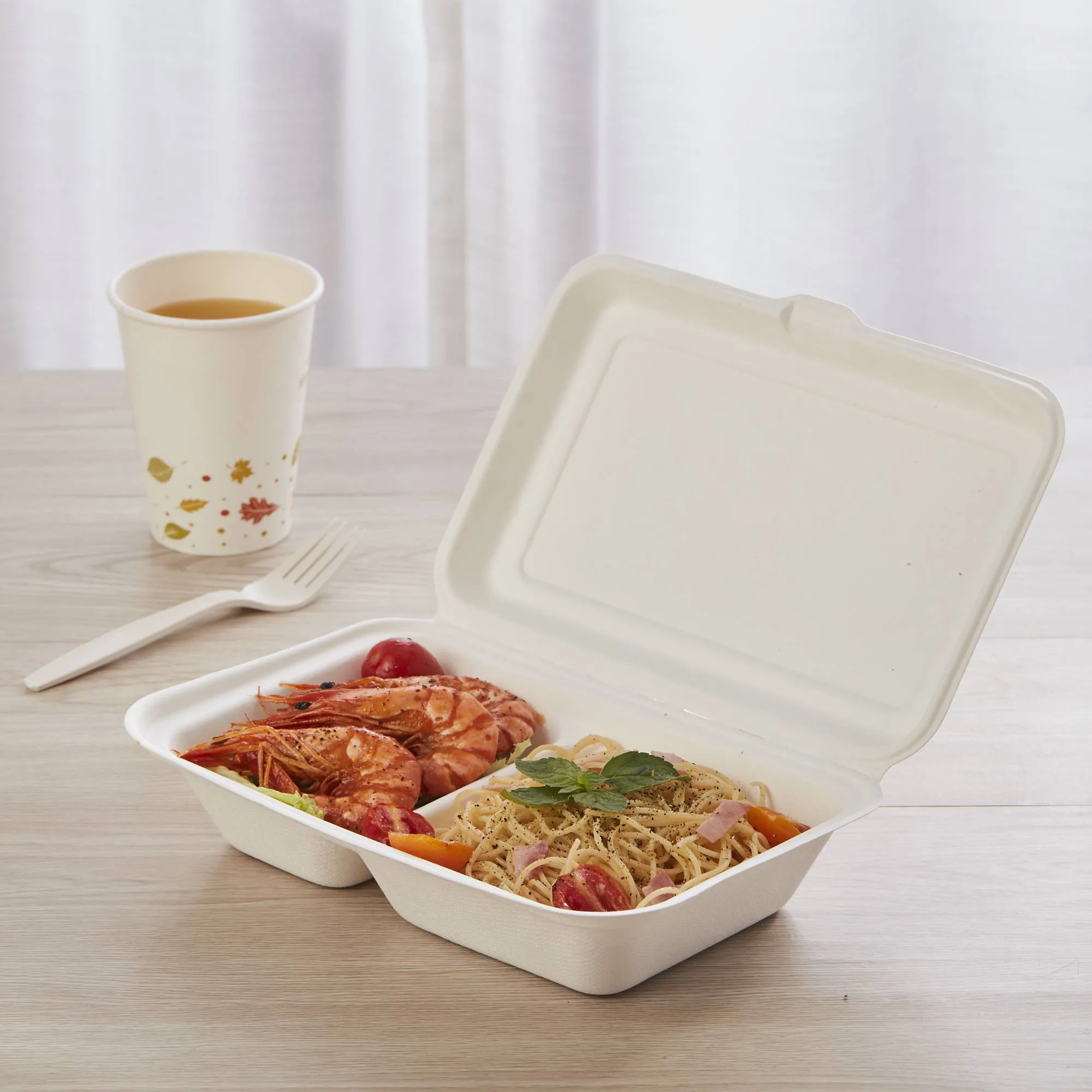
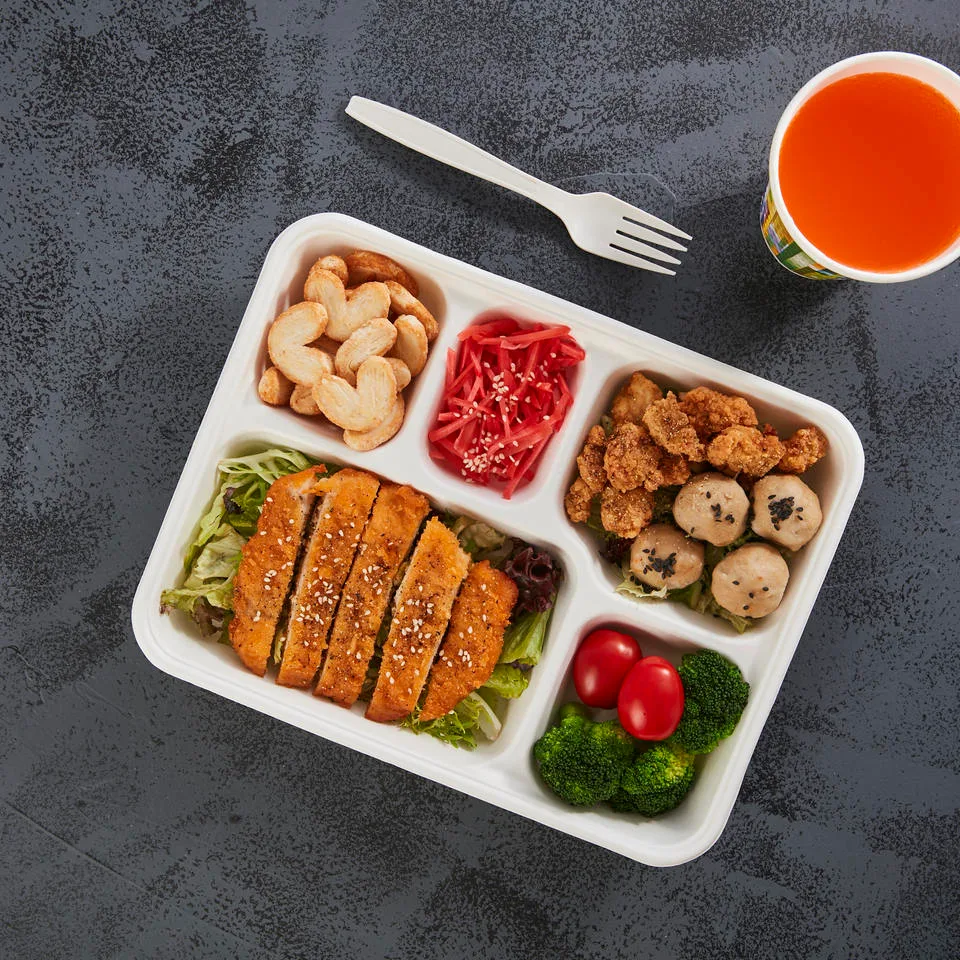
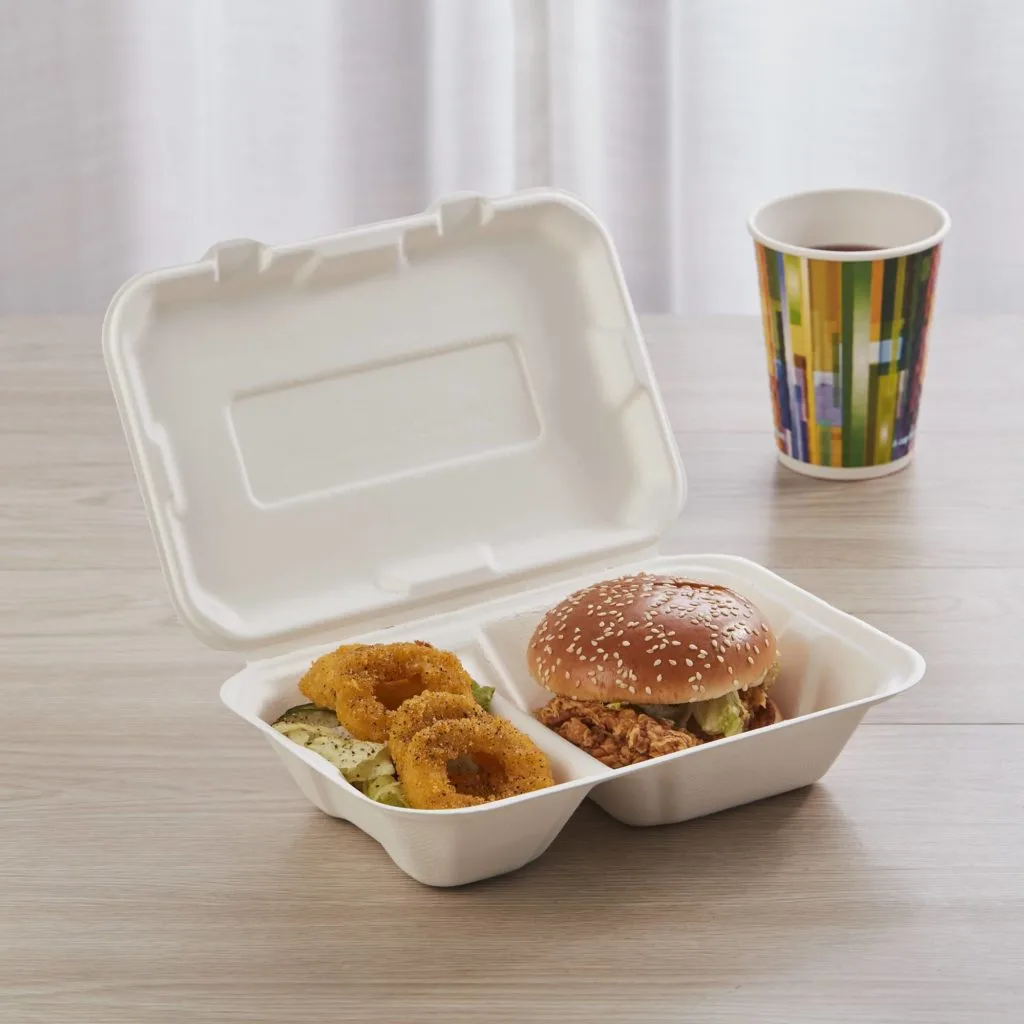
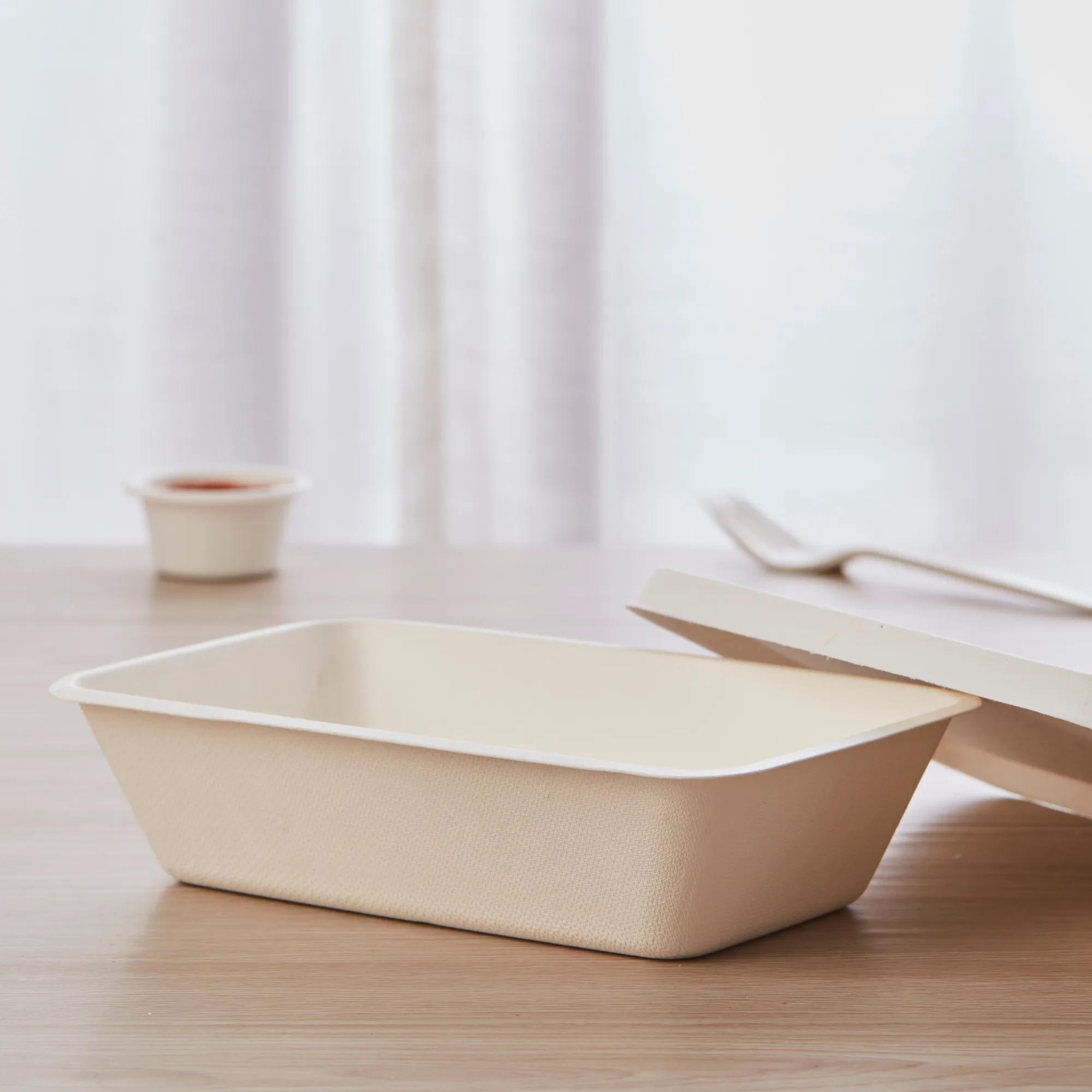
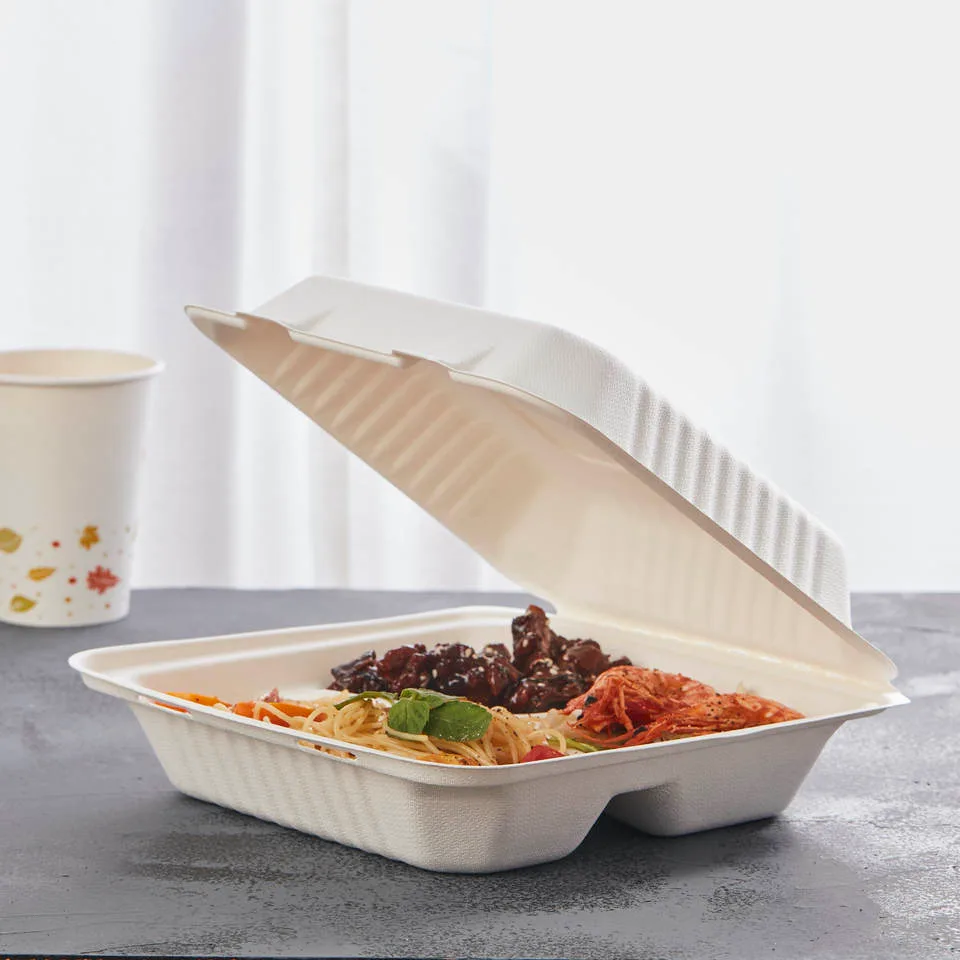

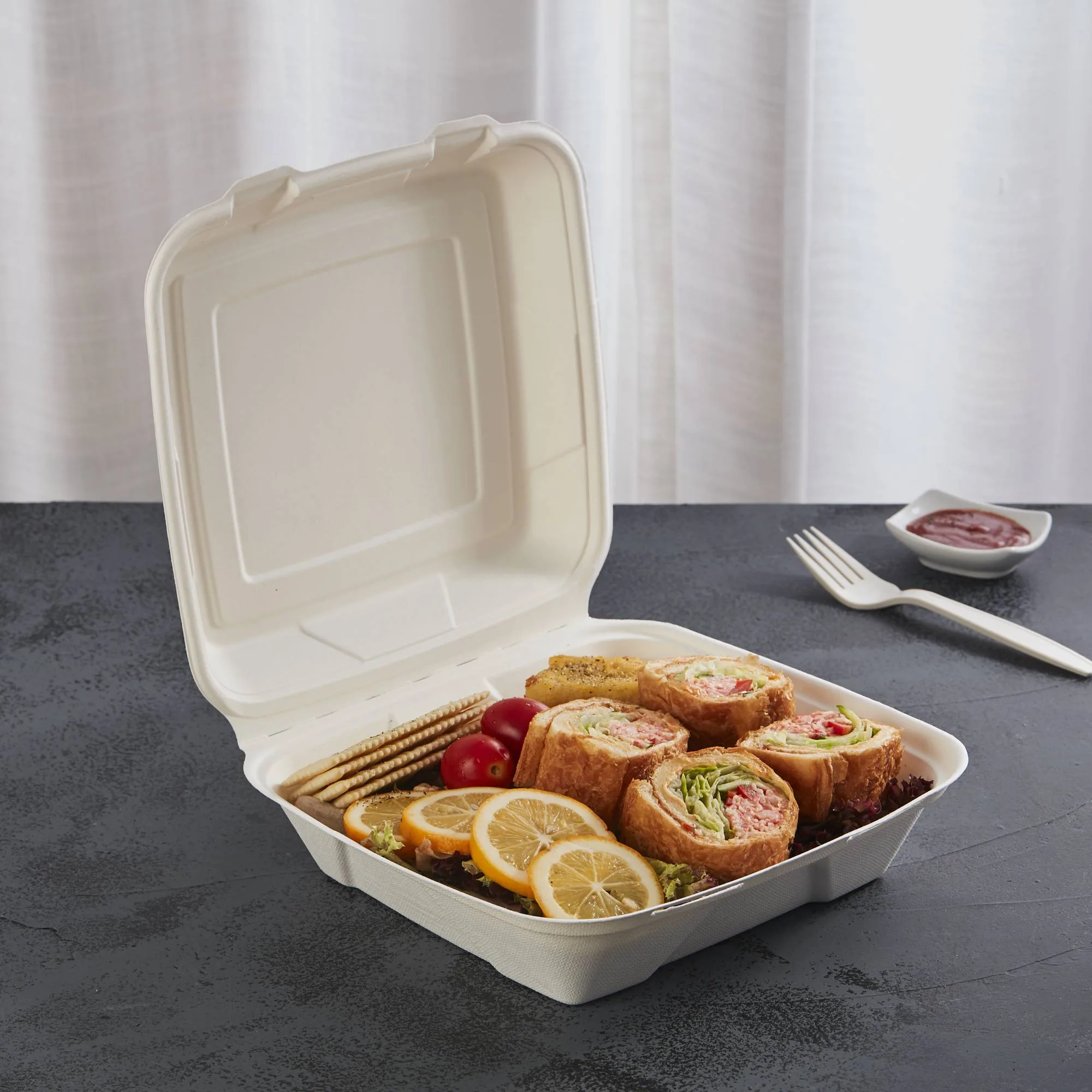
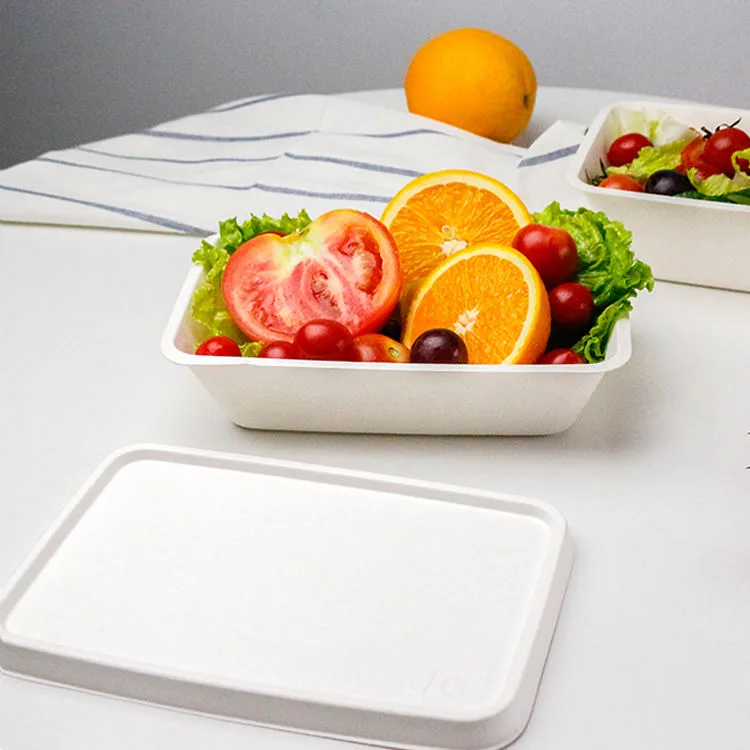
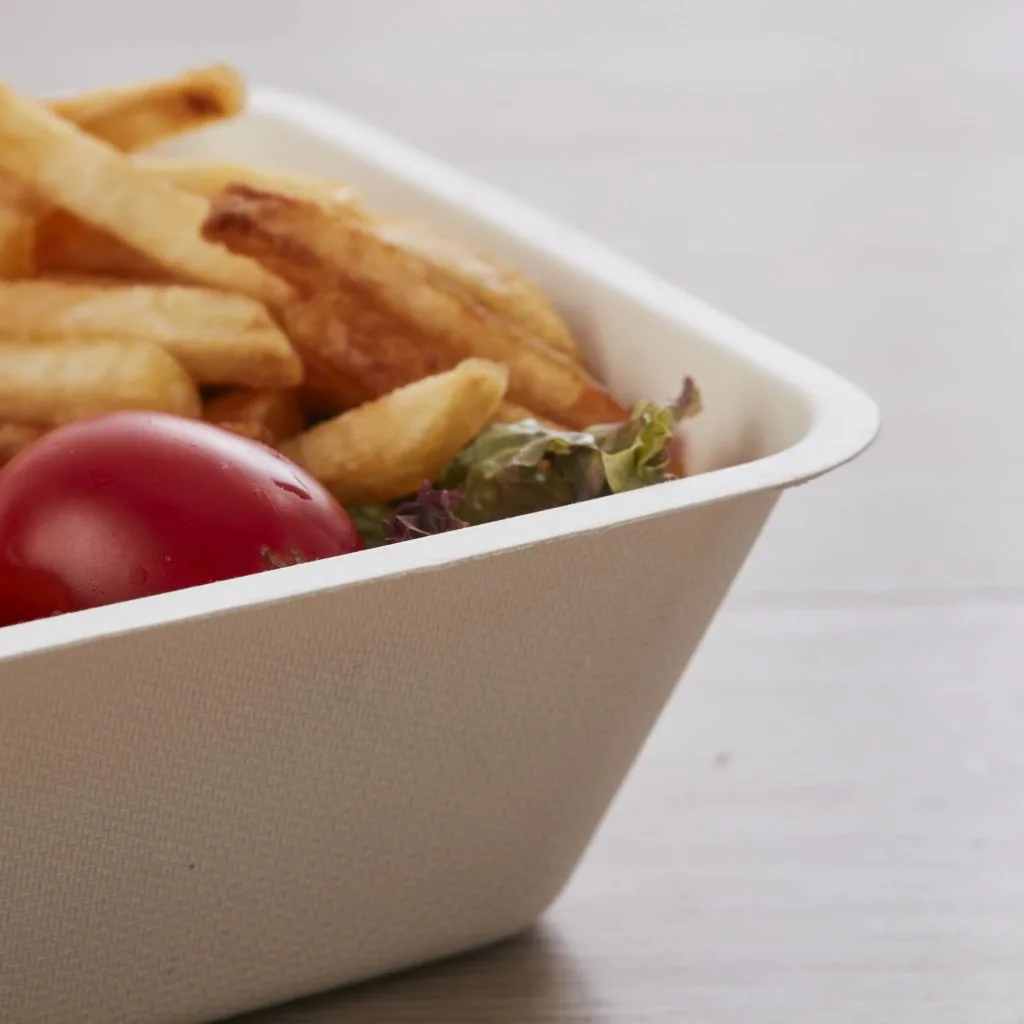
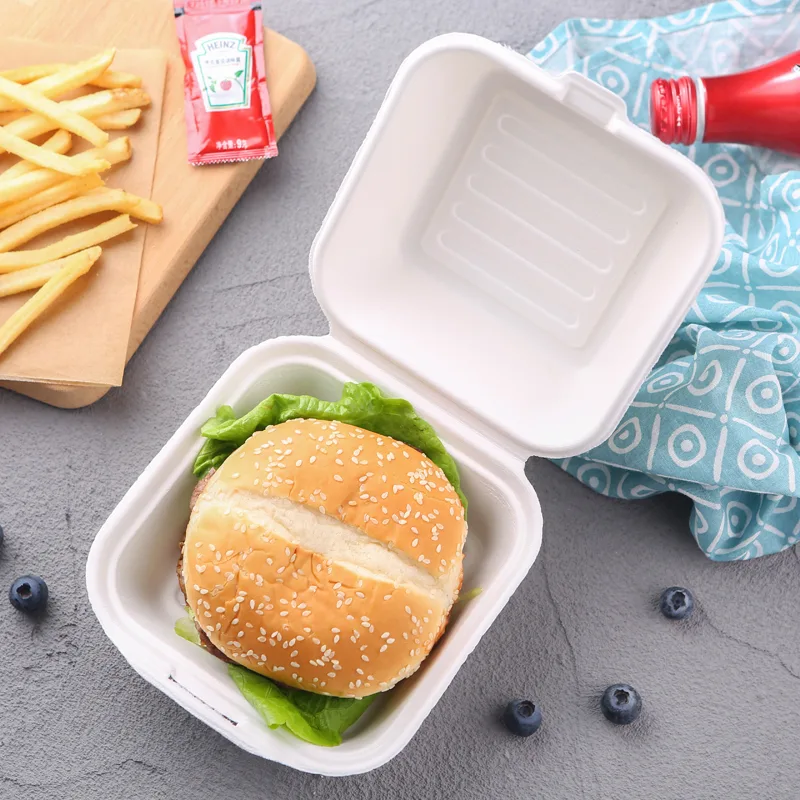
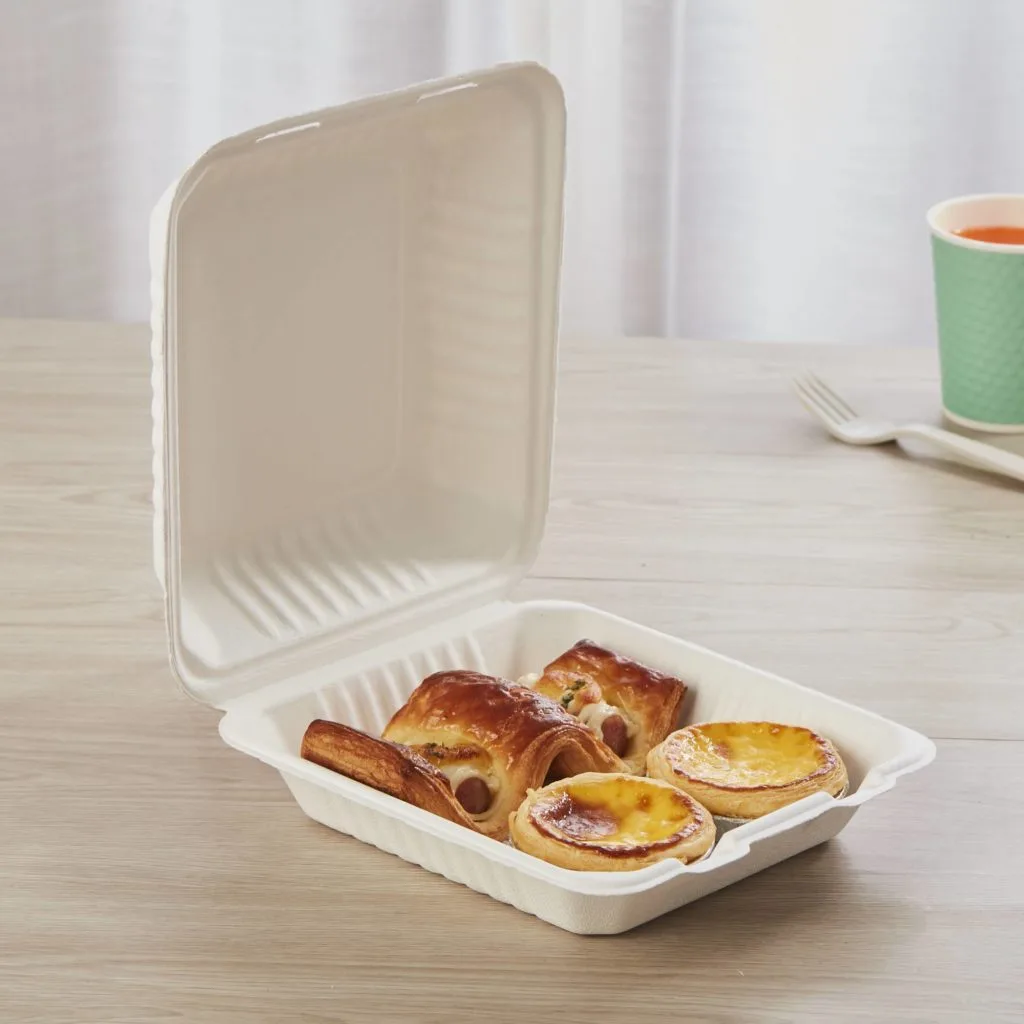
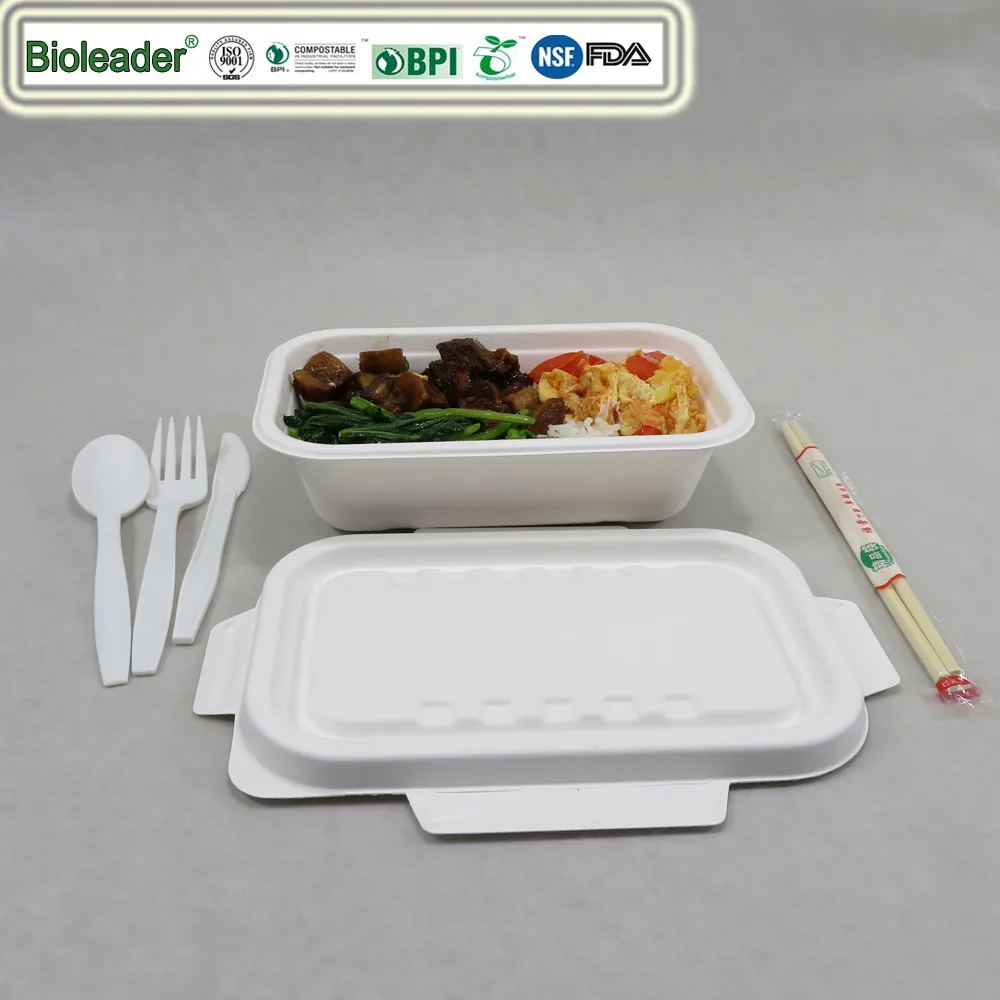
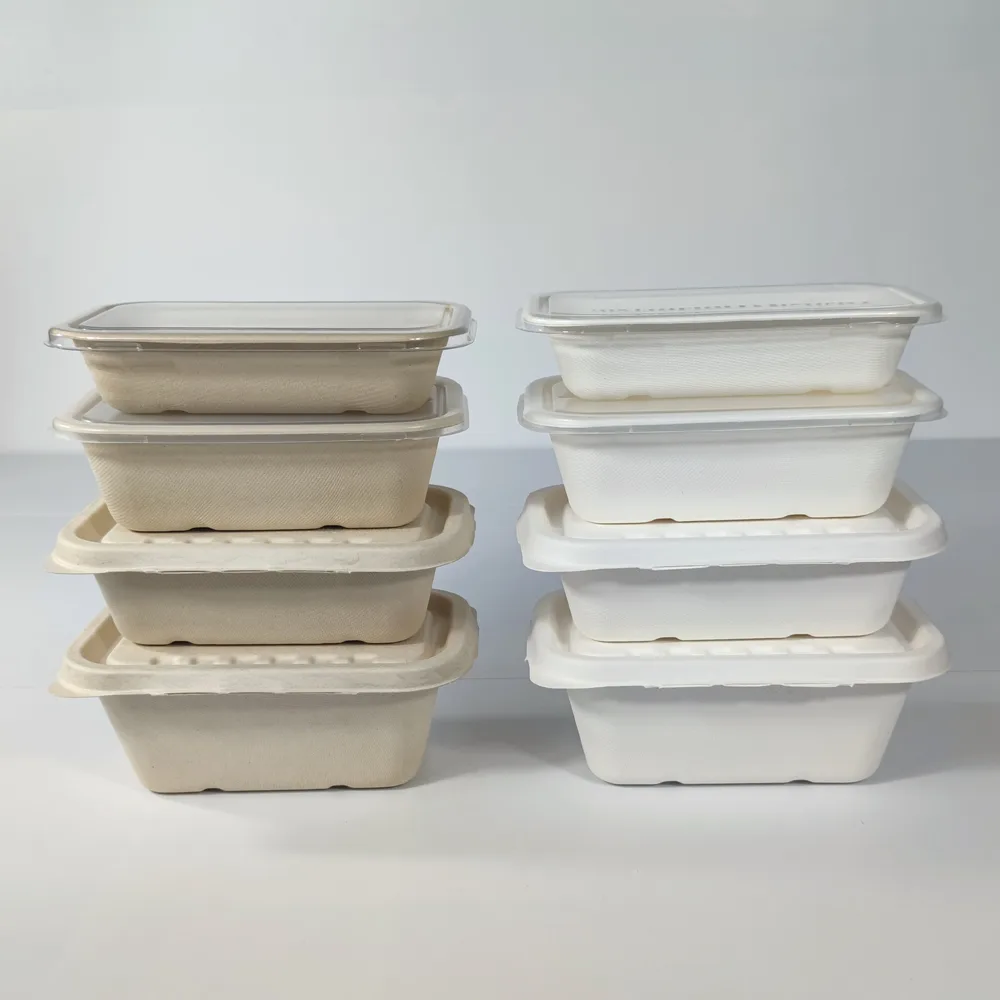
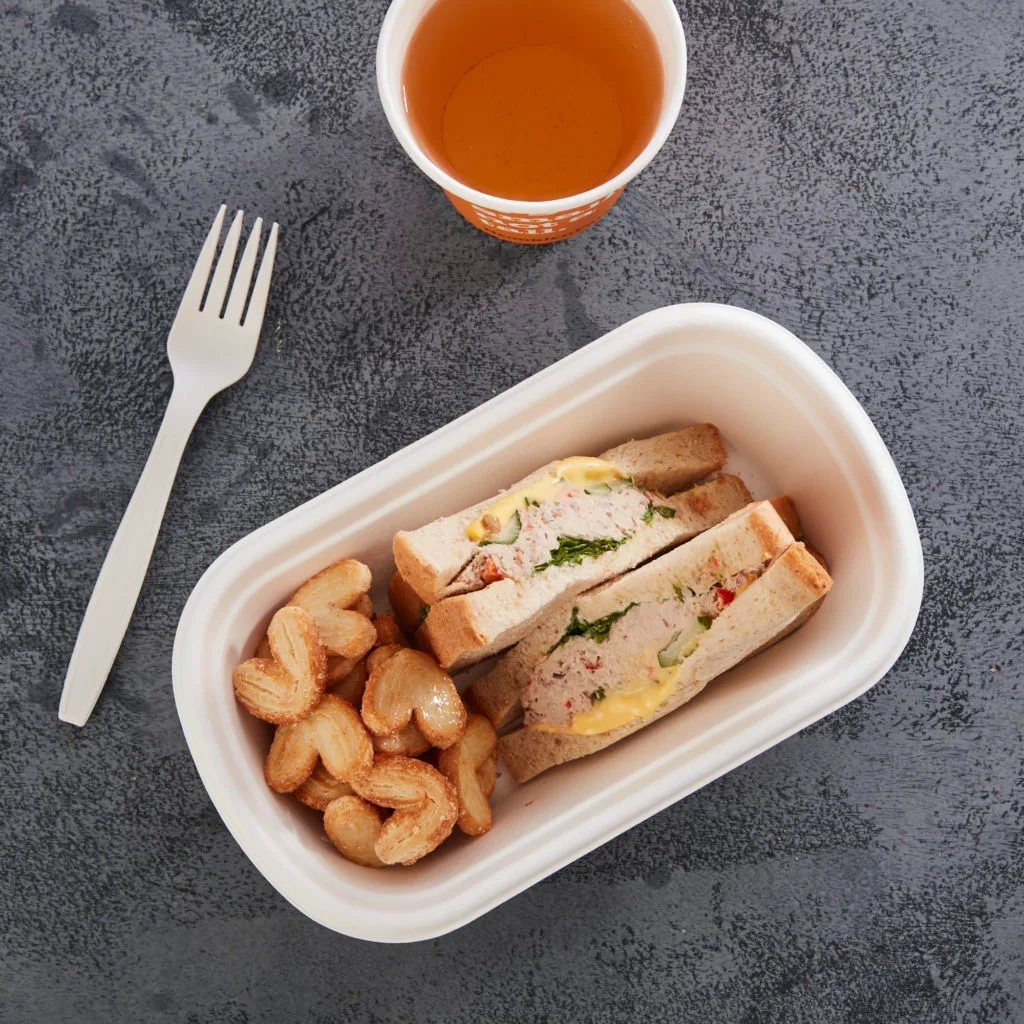
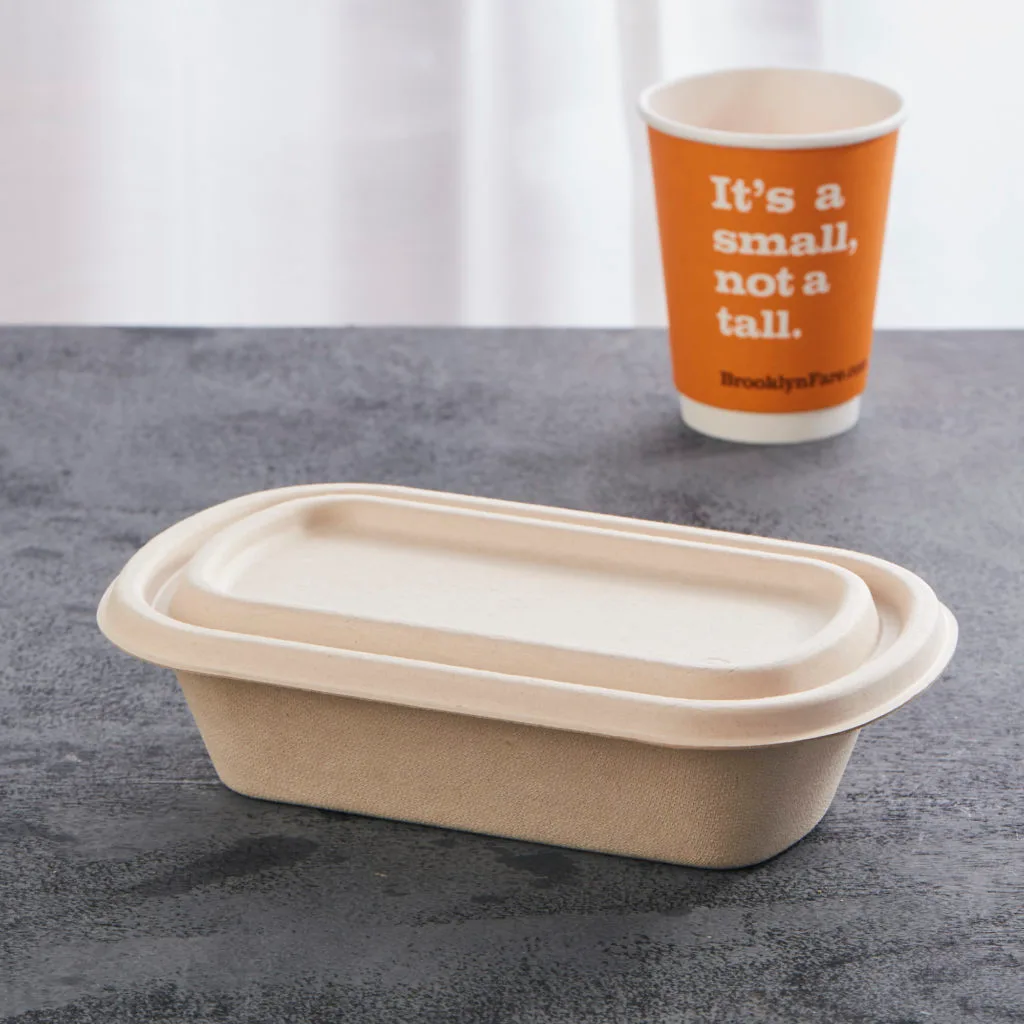
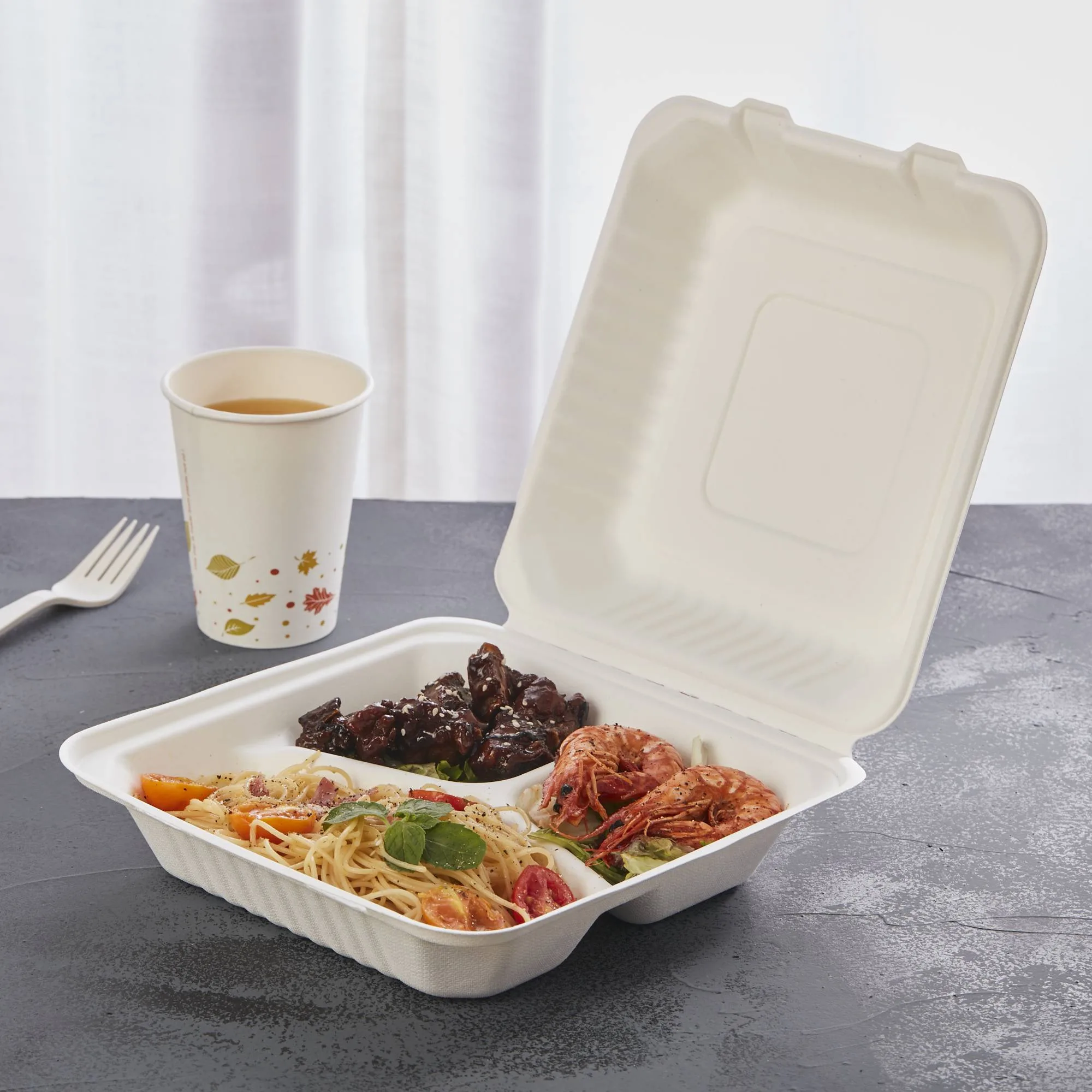

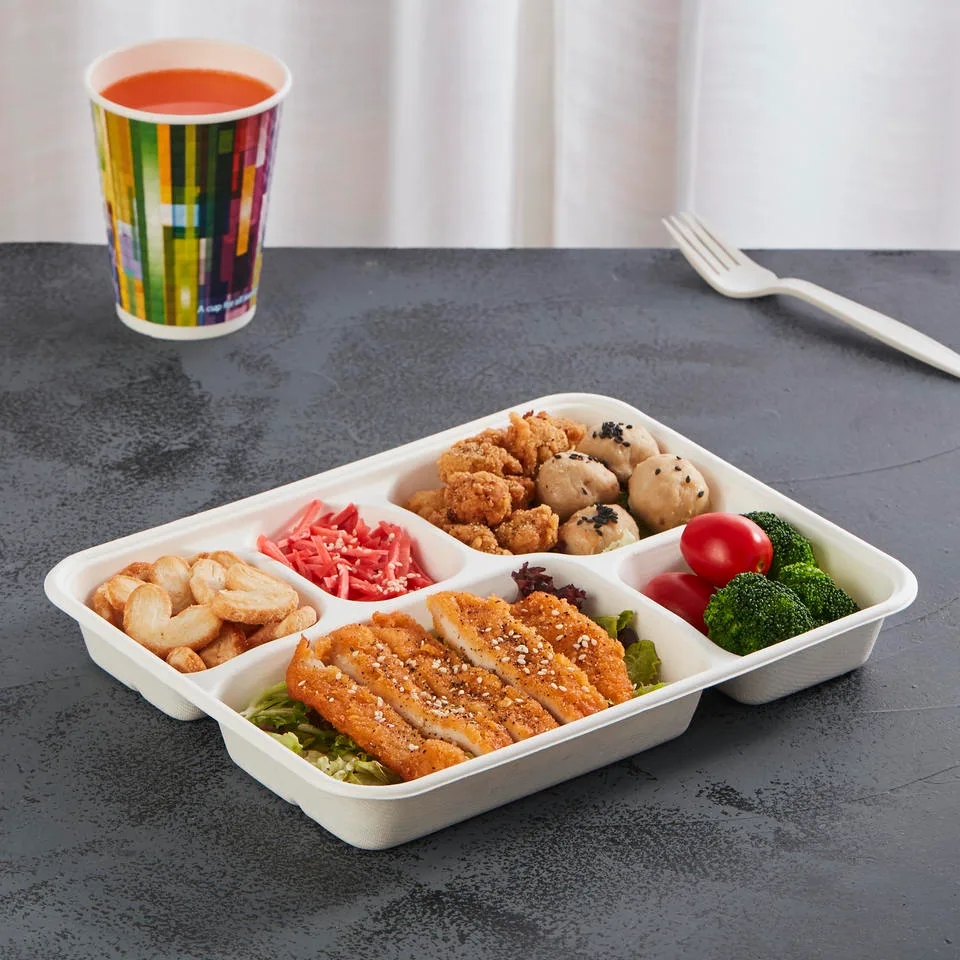
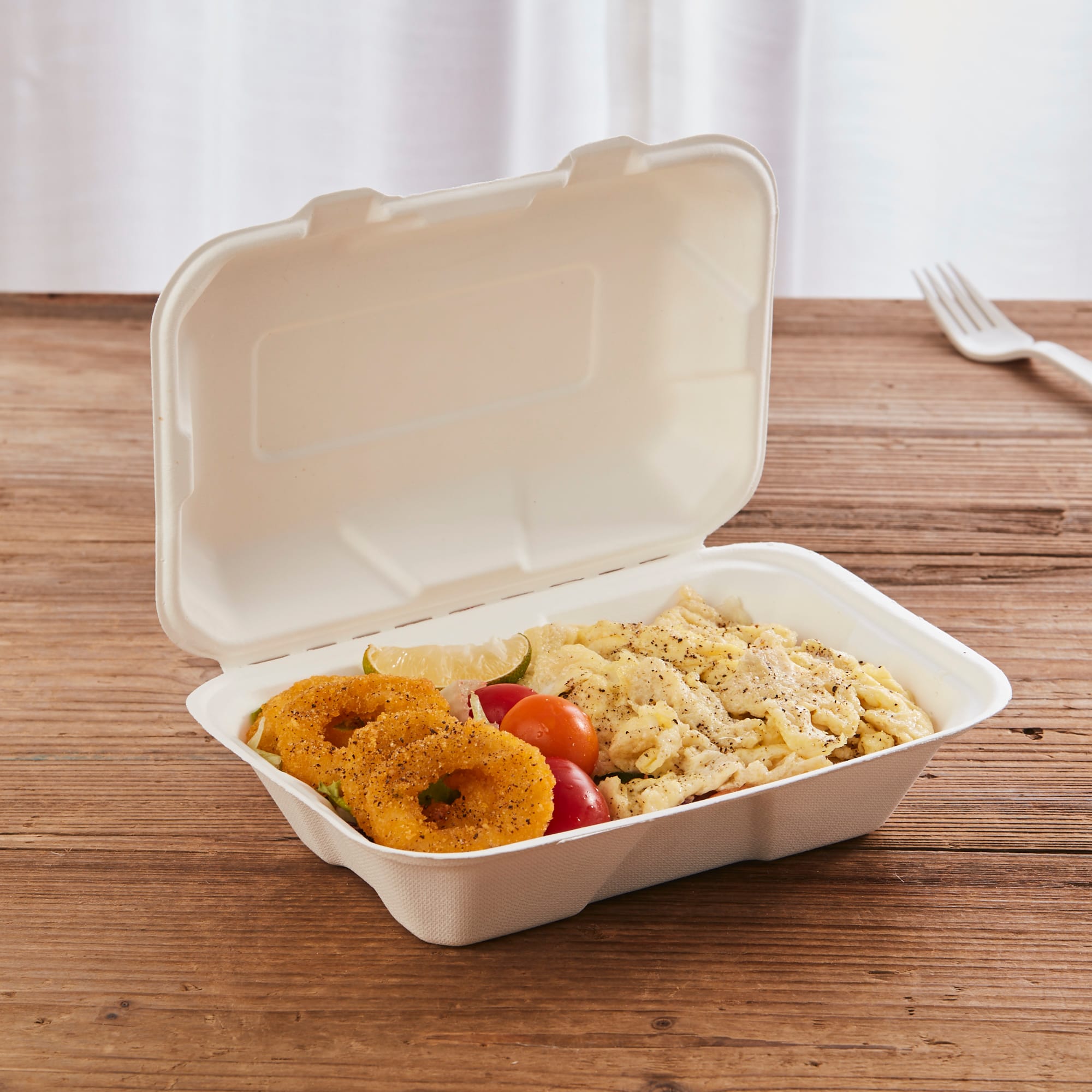

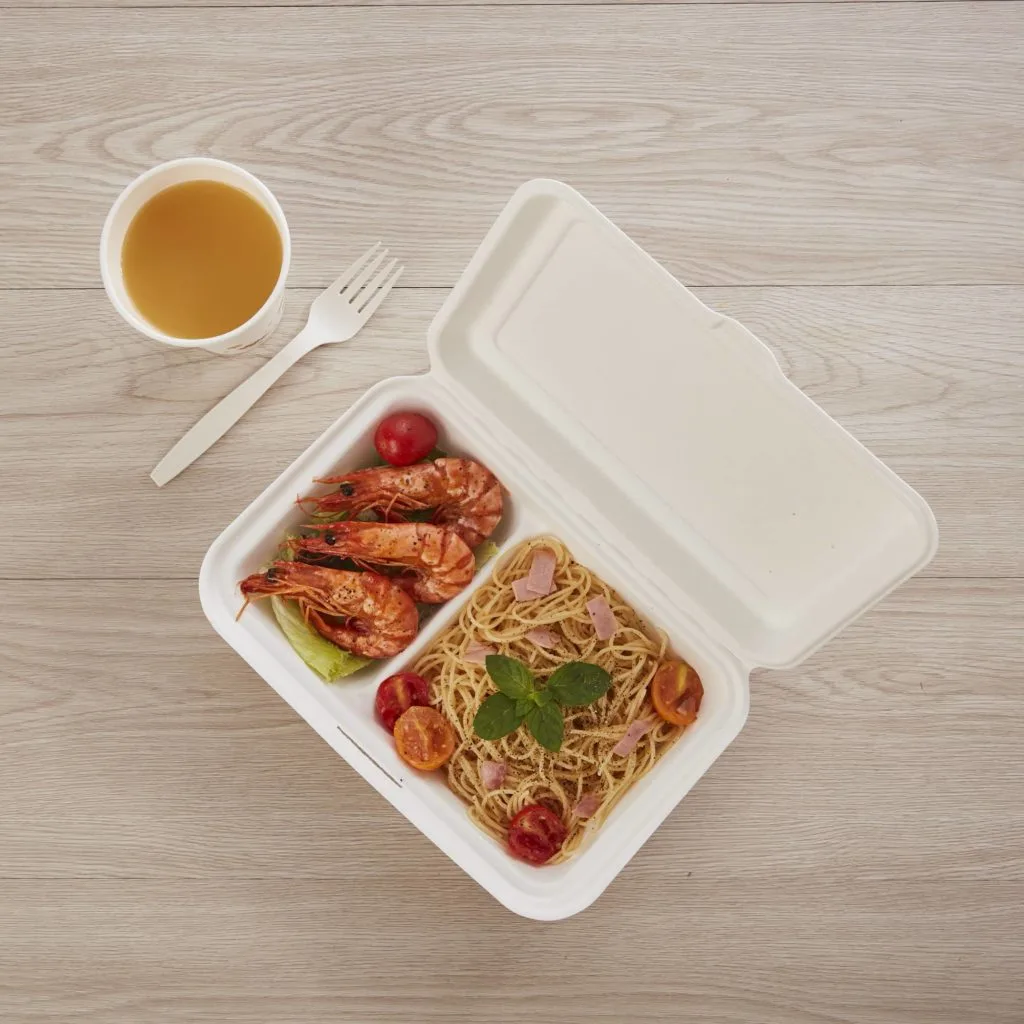

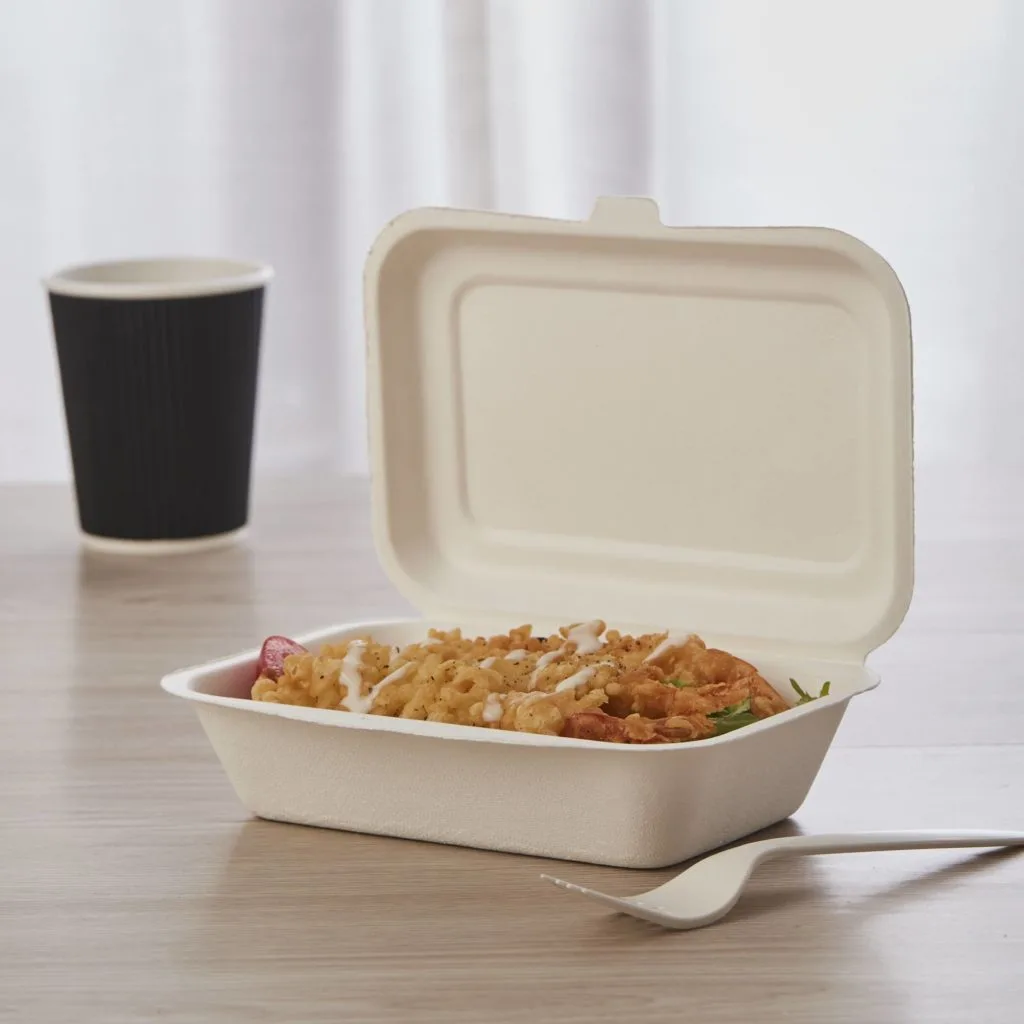
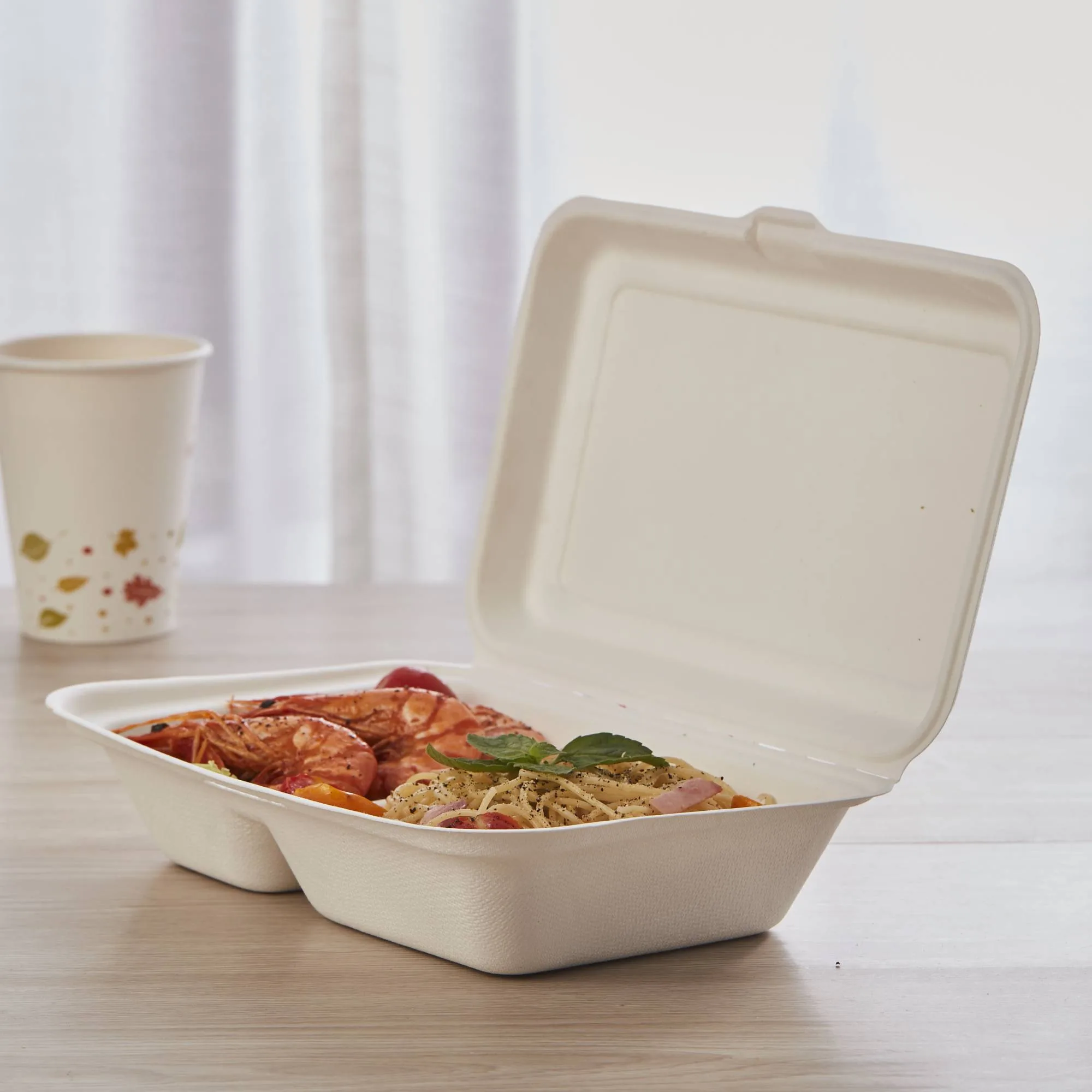
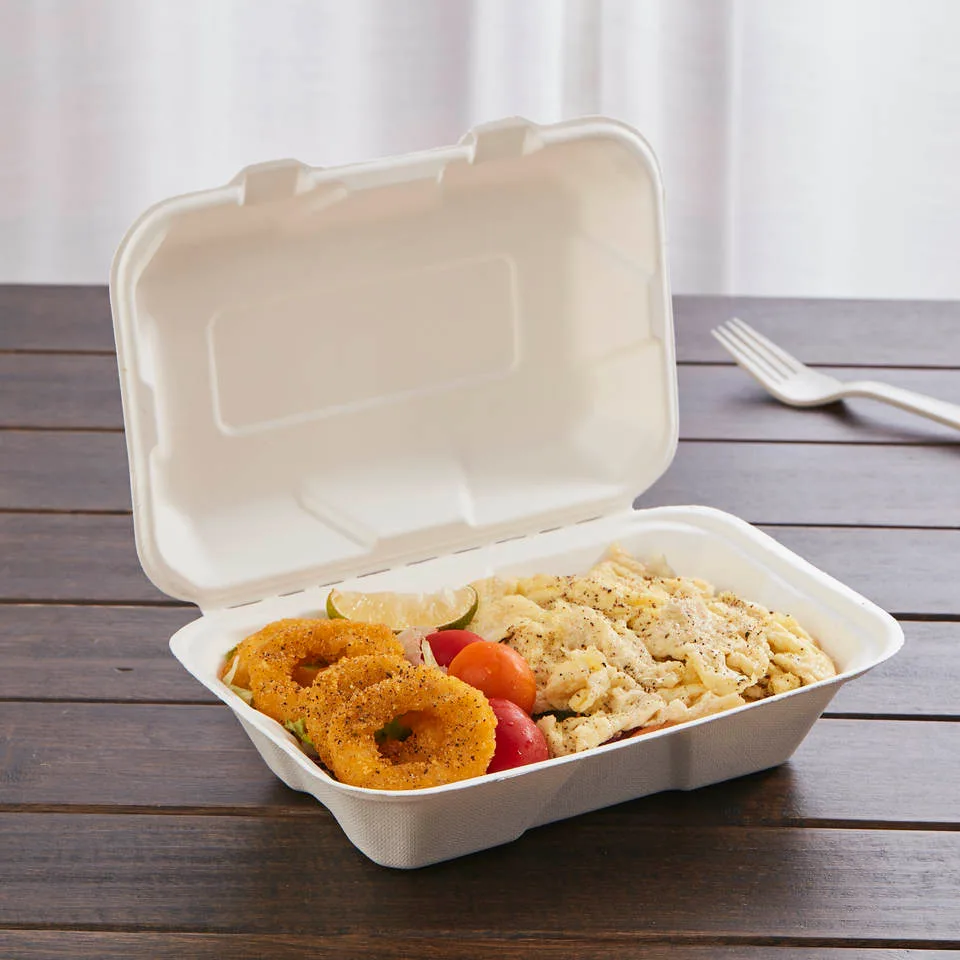
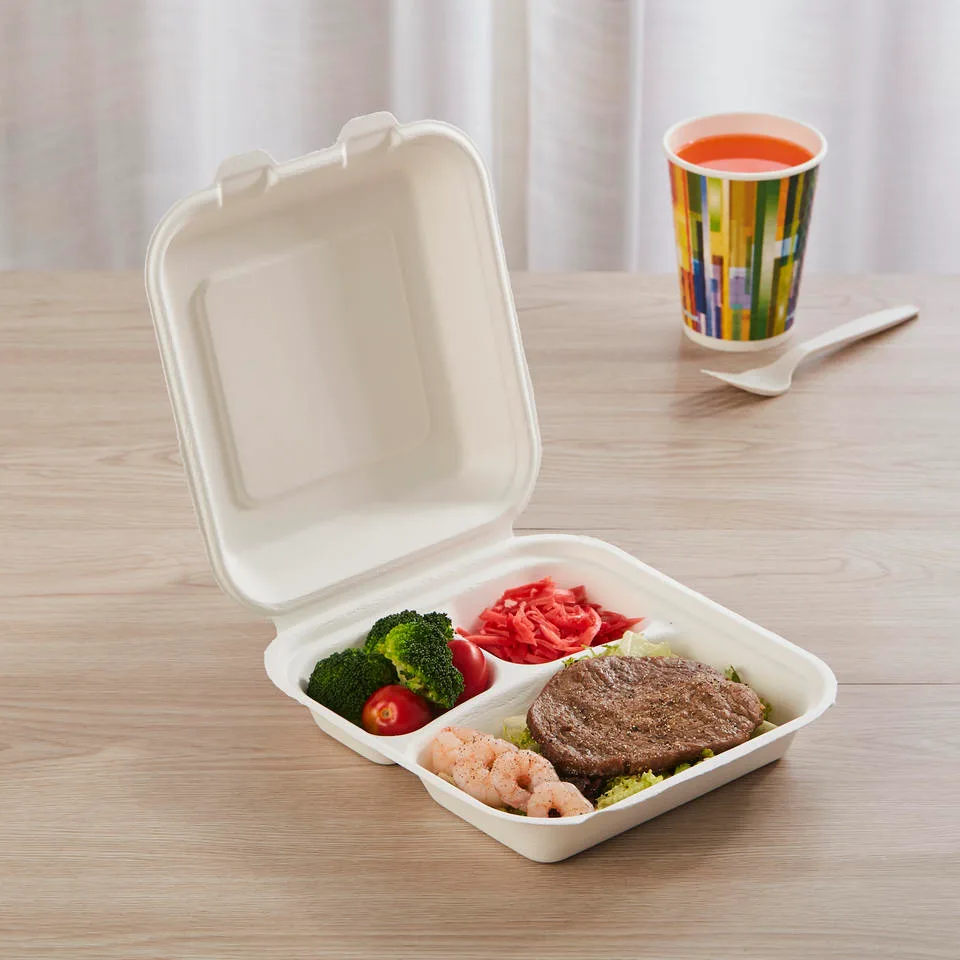
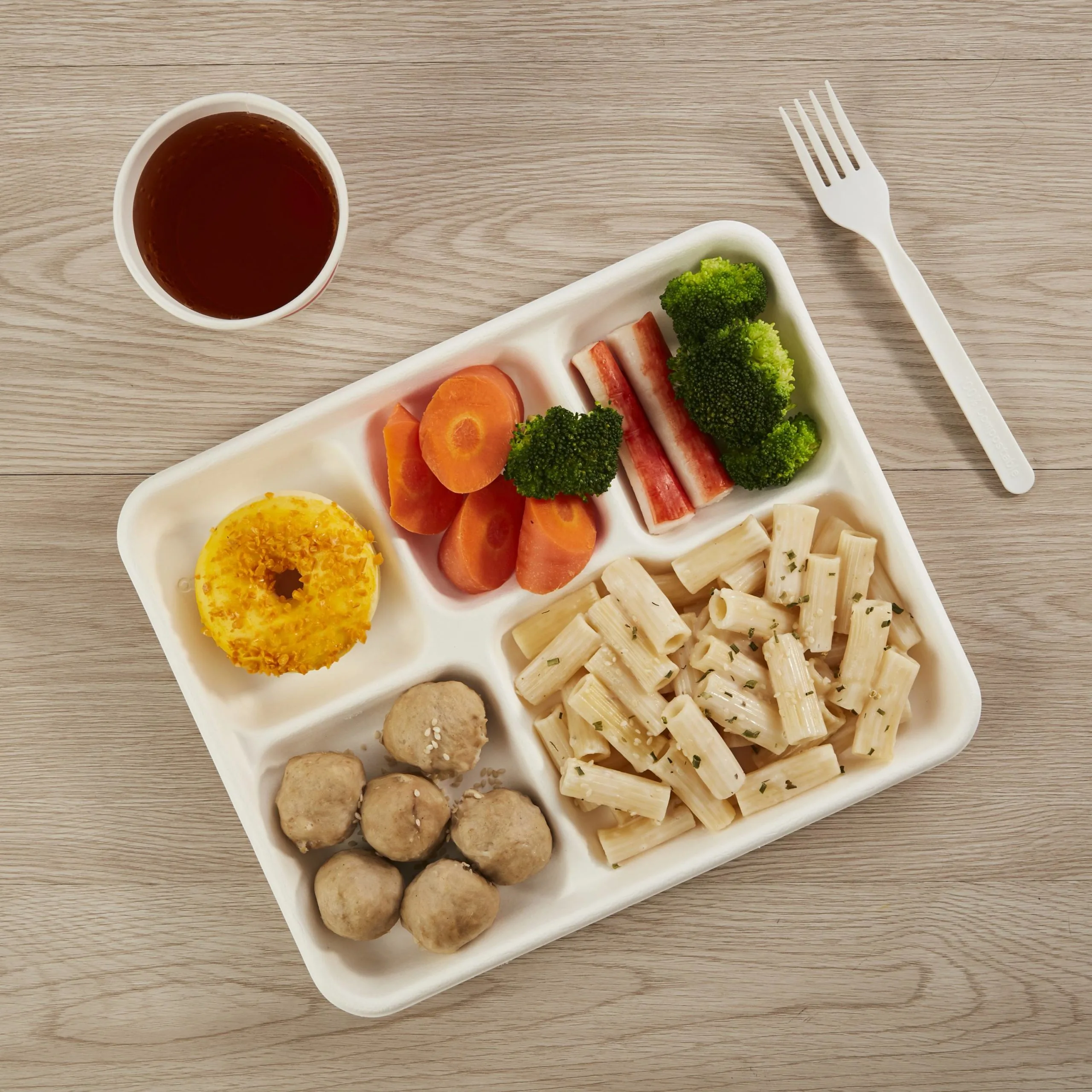
Material: Zuckerrohr-Bagasse und Produktionsverfahren: Zellstoffformung
Unser kompostierbare Lebensmittelbehälter sind hergestellt aus Zuckerrohrbagasse, a by-product of sugar production. This renewable material is eco-friendly, biodegradable, and strong, making it a perfect alternative to single-use plastics.
The production process involves Zellstoff-Formenbau technology, where sugarcane fibers are processed into durable containers. This method ensures the containers are leak-proof, sturdy, and safe for food contact while minimizing environmental impact.
Bioleader® Compostable Food Containers Solution
Features and Uses
Umweltverträglich: Crucially minimizes carbon emissions since it is constructed from readily available raw materials.
Kompostierbar: Intended to symbiotically work with composting programs for 90 days without any toxic substances.
Biologisch abbaubar: Naturally supports the breakdown and disintegration of RCG.
Lebensmittelsicher: Makes it easy and safe for food by eliminating harmful substances such as PFAS and BAP.
Auslaufsicher und ölbeständig: All options for the recipe including oily/nutty flavored and soup are acceptable.
Mikrowellengeeignet: easy and flexible to heat food whenever needed.
Versatile Applications: Broad range including but not limited to noodles, salads, meals, and soups.
Recyclable: These containers may simultaneously be recycled thus subsiding the idea of a linear economy.
Verwendungsszenarien
Restaurants: With their portability, they can serve fast indoor dining and take away too.
Takeout: Offering such meals to customers is simple.
Schulen: Effective for student lunches and their cafeteria.
Parties: They are properly suited for events with the use of catering services.
On-the-Go: They are perfect for outside dining and meal preparation.
Industry Insights
The increase of kompostierbare Lebensmittelbehälter is part of a greater trend toward sustainability across industries.
More and more companies and customers are using environmentally friendly packaging with the aim of reducing plastic waste while protecting the environment. This change in the industry is in line with the global efforts to aim for a greener planet in the future.
FAQ of Bioleader's Compostable Food Containers
What are compostable food containers made from?
They are made from sugarcane bagasse, a renewable and eco-friendly material.Can these containers hold hot foods?
Yes, they are designed to handle both hot and cold foods safely.Are compostable food containers microwaveable?
Yes, they are safe for reheating in the microwave.How long do they take to decompose?
They decompose within 30 to 90 days in commercial composting facilities.Are these containers leak-proof?
Absolutely! They are leak-proof and resistant to oil and moisture.Are they safe for food contact?
Yes, they are PFAS-free and BPA-free, making them food-safe.

